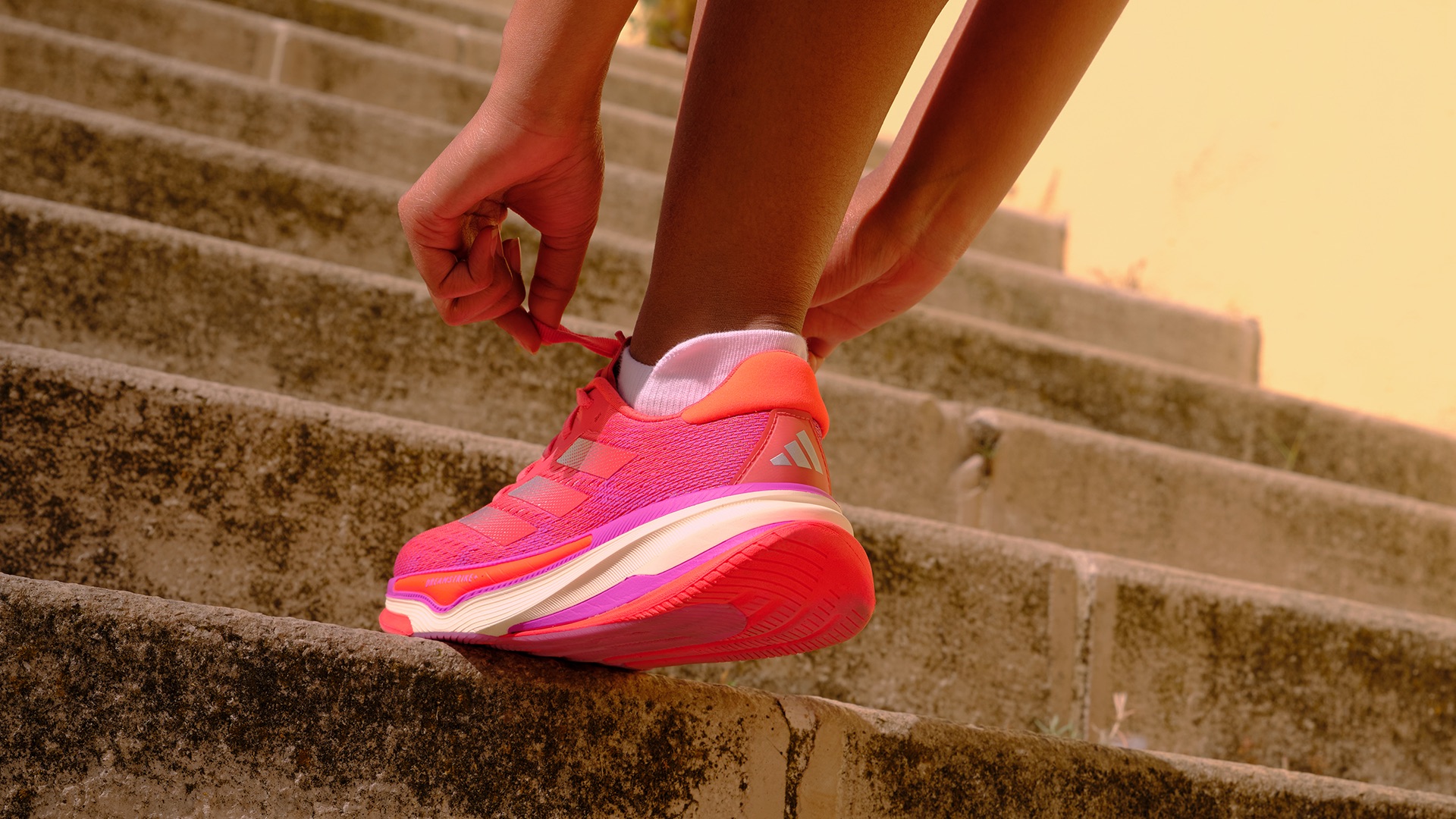

Finding the perfect pair of running shoes is crucial for any runner, whether you're a casual jogger or a seasoned marathoner. With the right footwear, you can enhance your performance and overall enjoyment of running. However, navigating through the multitude of running shoe options can be overwhelming.
To help you make an informed decision, we've extensively tested and reviewed the top running trainers from leading brands like Nike, New Balance, On, Saucony, ASICS, Adidas, Hoka, and more. Each shoe in our selection is tailored to address specific running needs, ensuring there's something for everyone.
Neutral shoes offer balanced cushioning for those with a natural gait, while stability shoes provide extra support to prevent overpronation. For those seeking maximum shock absorption, cushioned shoes are a dream come true, perfect for long-distance runs. If speed is your goal, lightweight racing flats will have you flying down the streets. And for runners who crave a little bit of everything, versatile hybrid shoes seamlessly transition from road to trail.
If you're in need of specialised footwear, we have curated guides for the best women's running shoes and the best trail running shoes to cater to specific preferences and terrains.
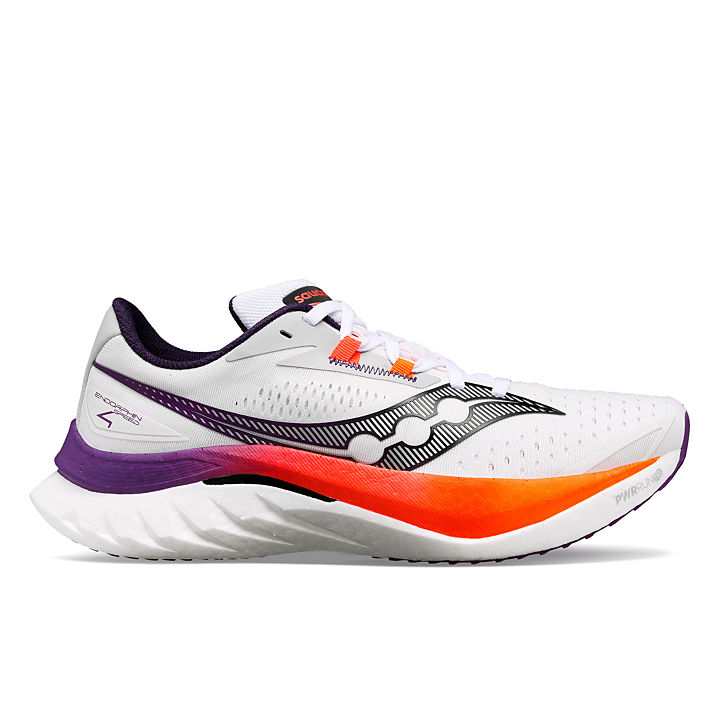
The Endorphin Speed 4 balances comfort and performance with SPEEDROLL, PWRRUN PB foam, and a winged nylon plate. Offers a snug fit and is perfect for fast paces and long distances.
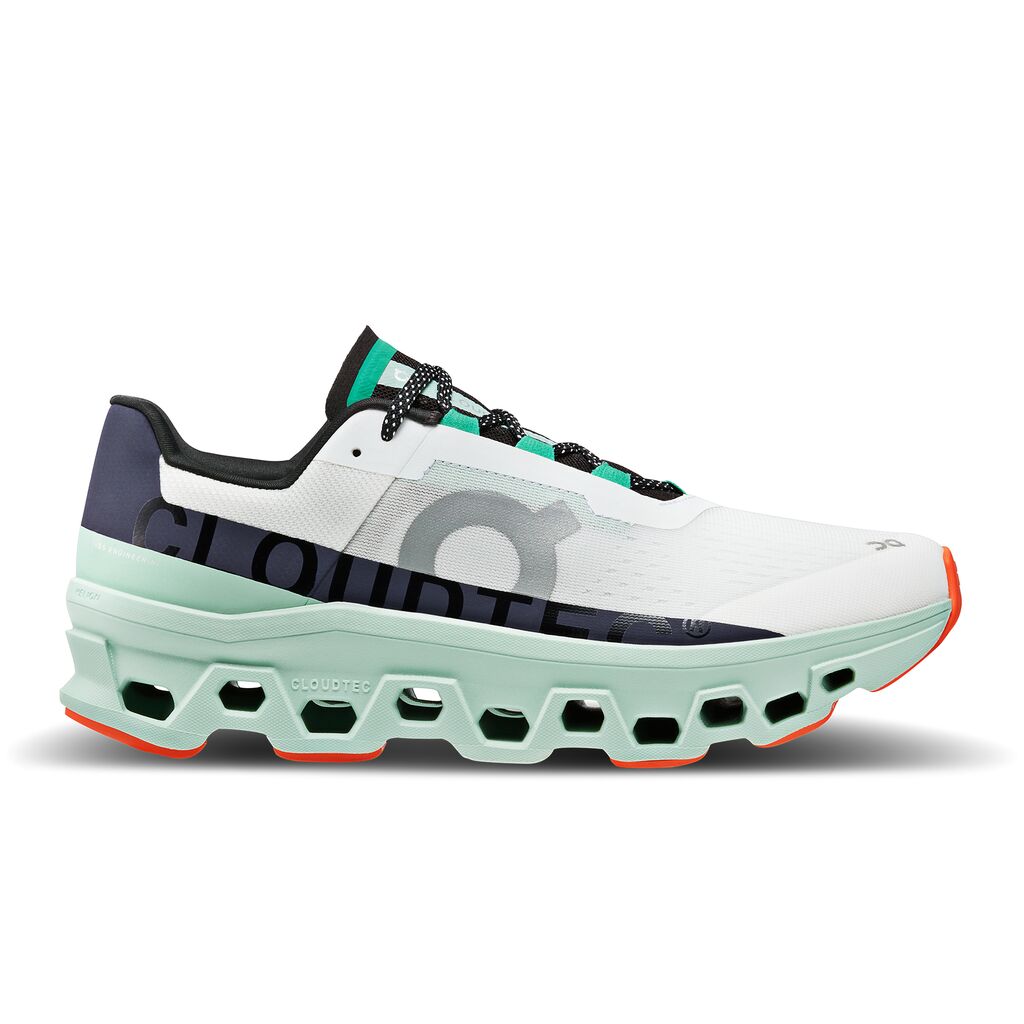
Features soft foam, stylish design, dual-layer Cloud elements, and Speedboard for long-distance runs. Ideal for runners seeking firmness and standout trainers.
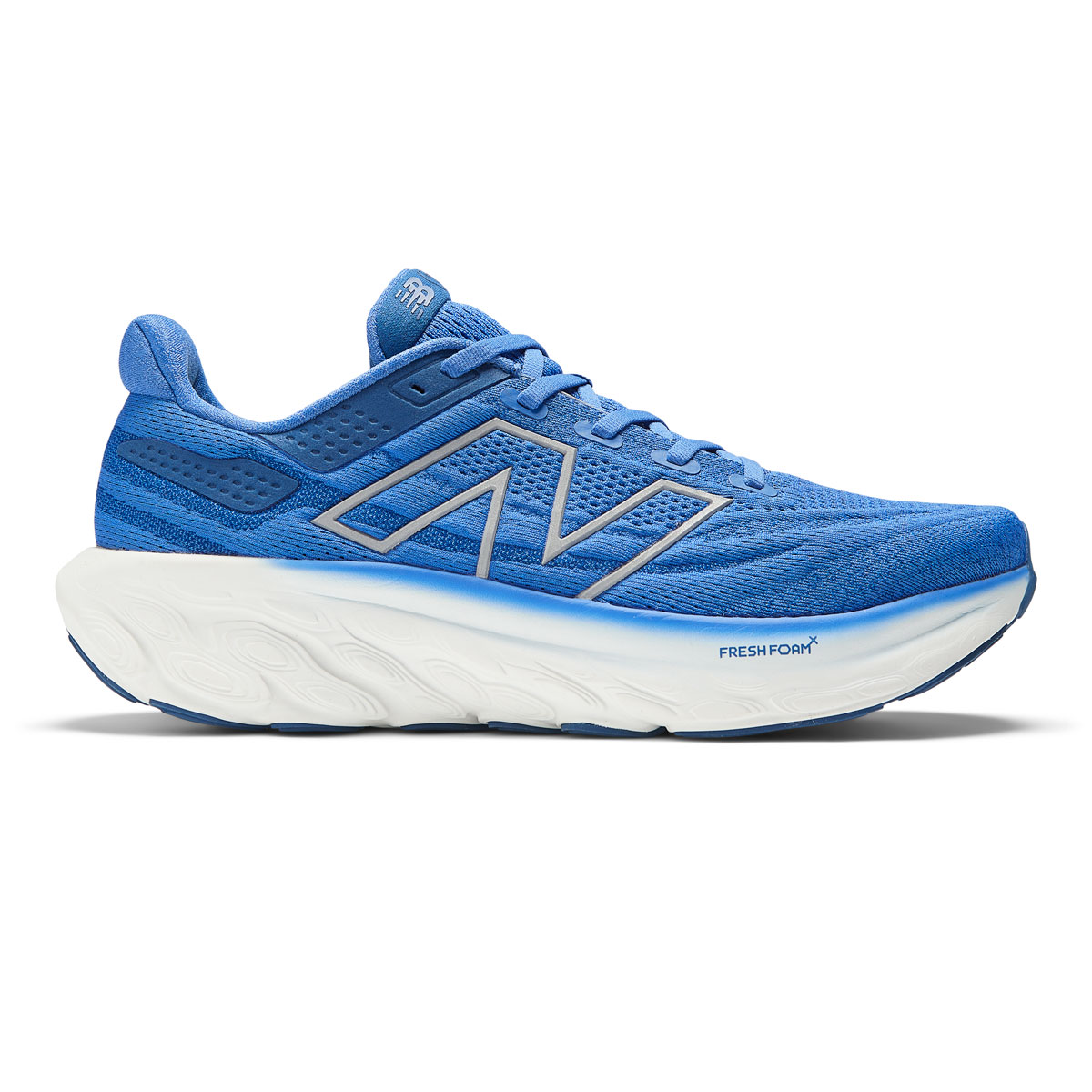
Enhanced Fresh Foam X midsole, improved forefoot stiffness, and better grip. Plush cushioning and mesh upper suit various activities, especially for those with plantar fasciitis.
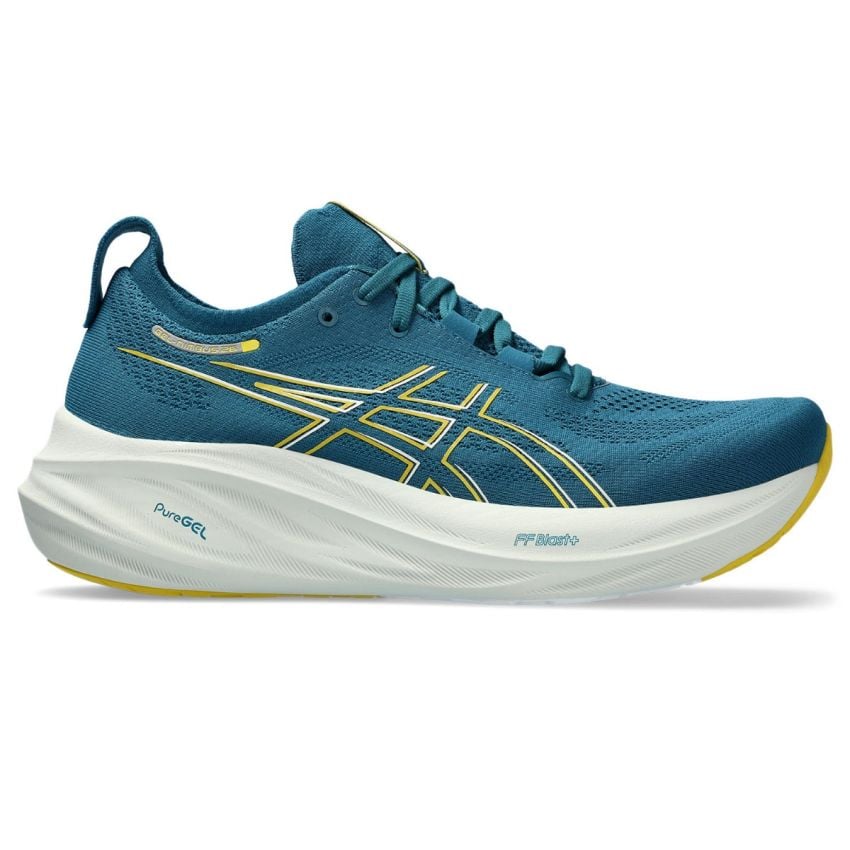
Incremental update with PureGEL and FF BLAST PLUS ECO foam for cushioning, Hybrid Asicsgrip for traction, and engineered knit upper for support. Ideal for slow runs and recovery.
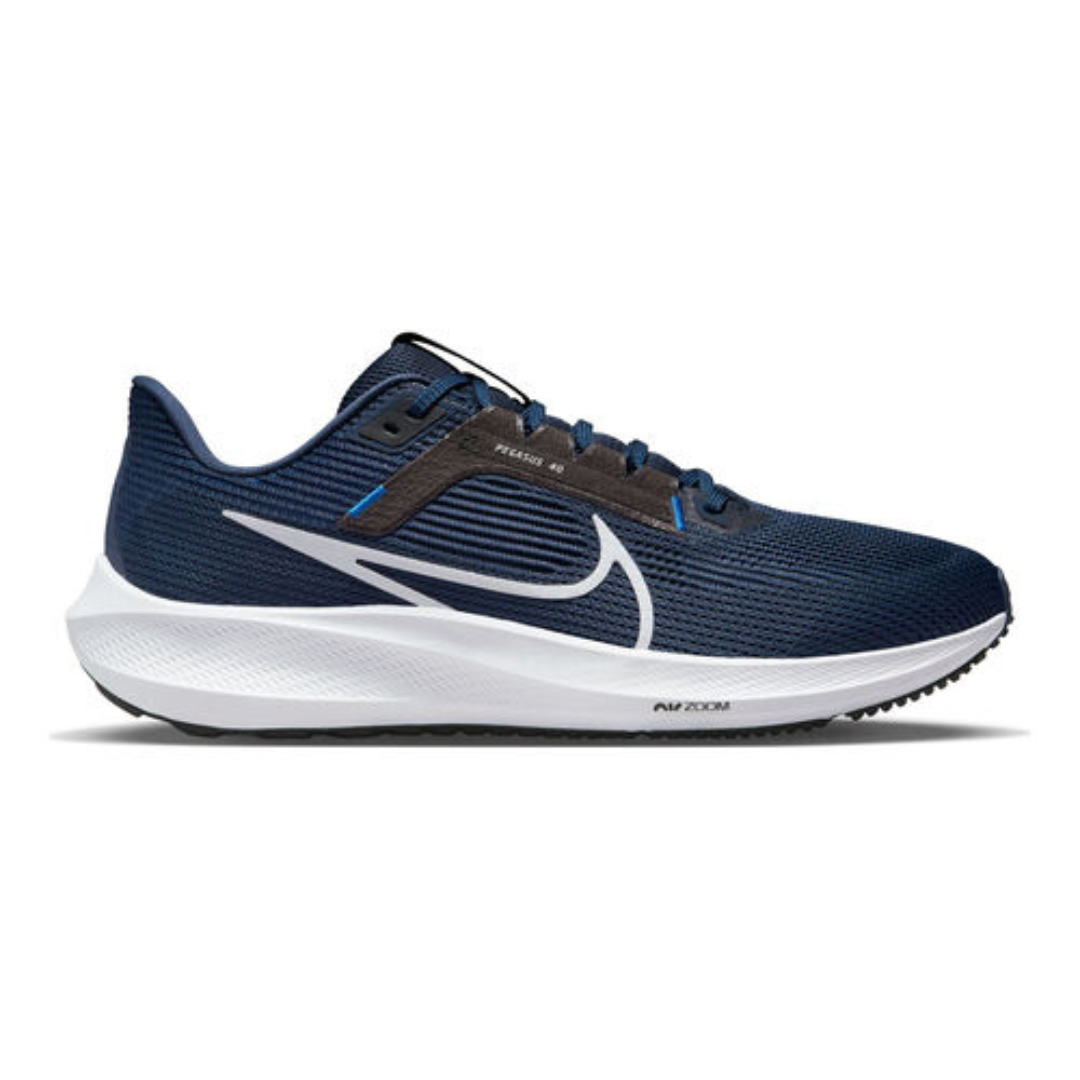
Nike's Pegasus 40 offers comfort, responsiveness, and style. Enhanced fit and ergonomics make it the most comfortable yet. Ideal for recreational runners seeking reliable, versatile daily trainers.
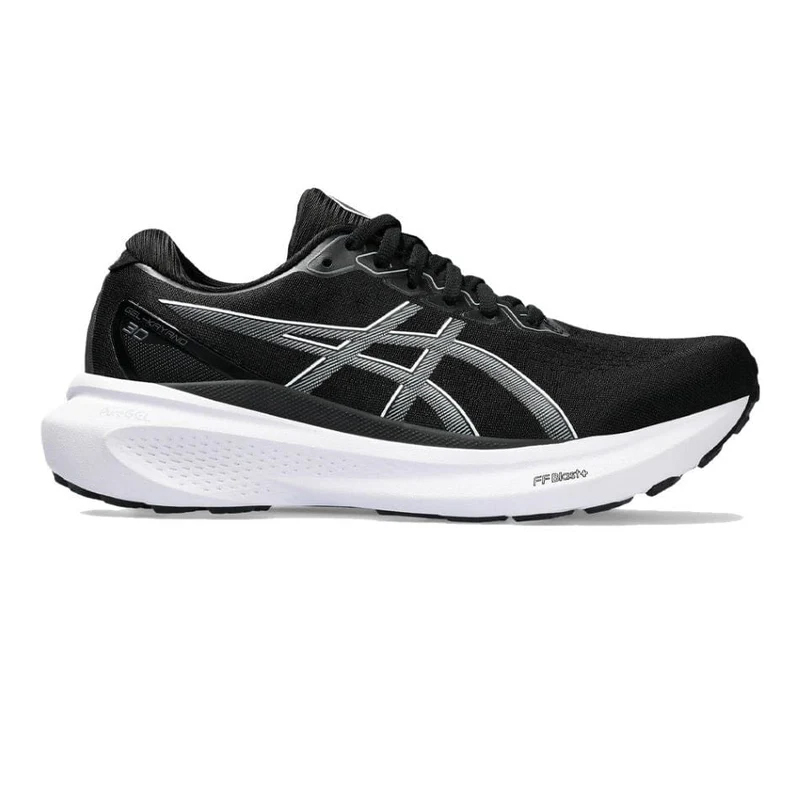
The Gel Kayano 30 offers a simplified design, integrating support and enhanced comfort with extra foam and a revamped upper. Ideal for overpronators, it provides subtle stability, ensuring a lively running experience.
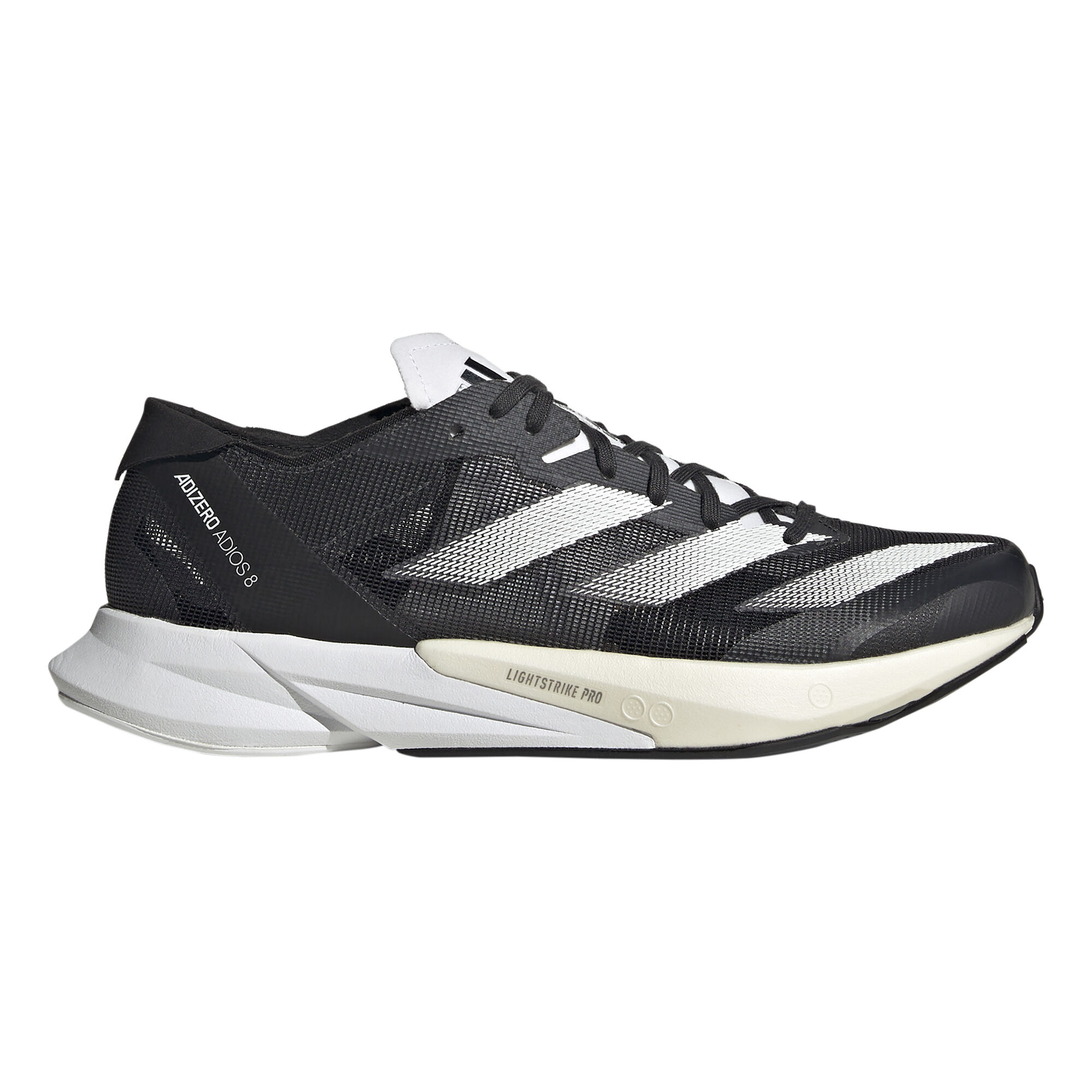
The Adidas Adizero Adios 8 excels for versatile training and racing with Lightstrike 2.0 and Lightstrike Pro foams. The redesigned mesh upper offers targeted support, and the updated Energytorsion Rod 2.0 enhances toe-off snap.
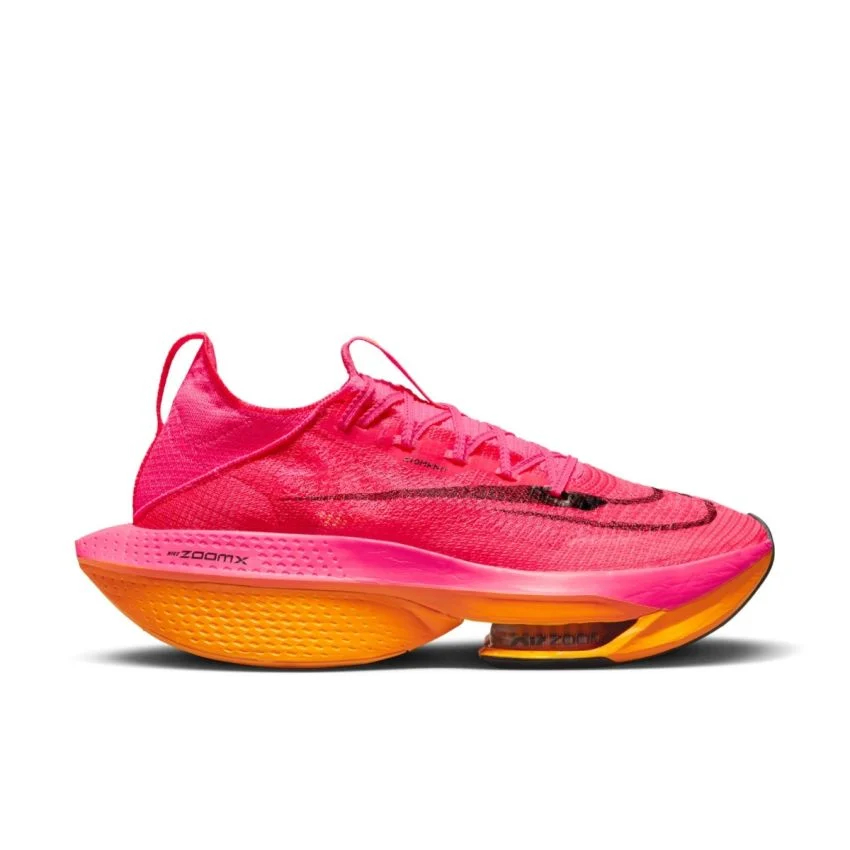
The Adidas Adizero Adios 8 excels for versatile training and racing with Lightstrike 2.0 and Lightstrike Pro foams. The redesigned mesh upper offers targeted support, and the updated Energytorsion Rod 2.0 enhances toe-off snap.
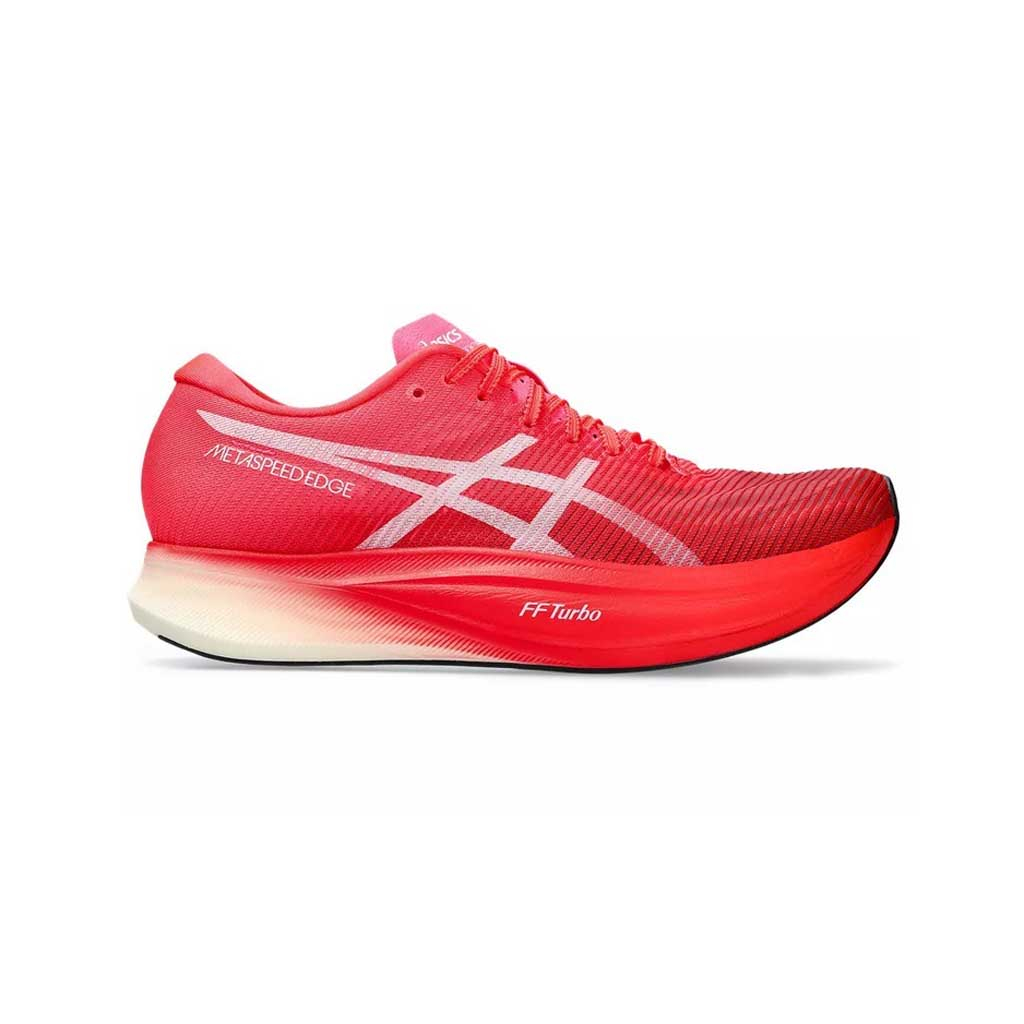
Asics's Metaspeed Edge+ boasts increased stack height and optimised carbon plate placement, ideal for personal bests in marathons. FF BLAST TURBO foam enhances responsiveness and energy return, while design improvements boost comfort.
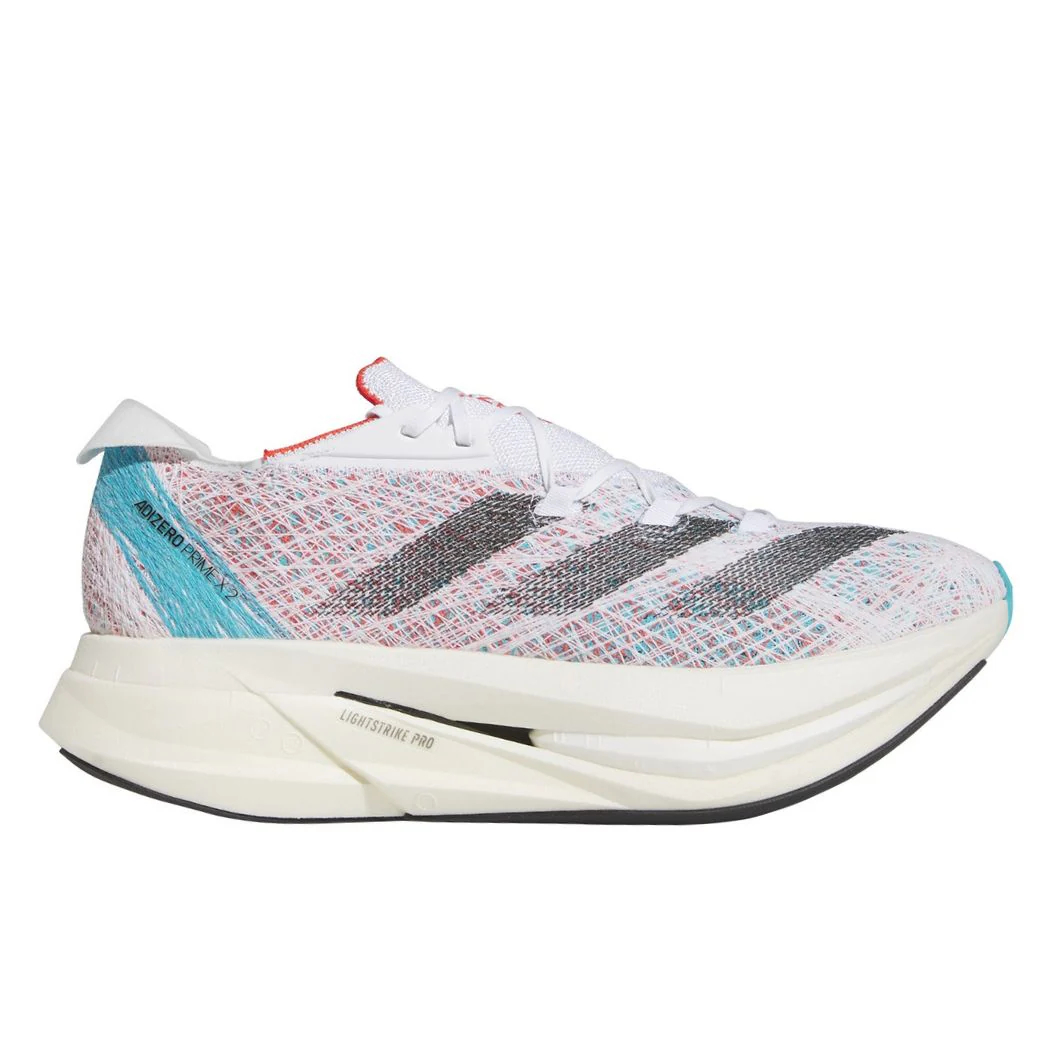
The Adidas Adizero Prime X 2 Strung features a Strung upper, dual carbon plates, and Lightstrike Pro foam for exceptional cushioning and energy return. Ideal for serious runners, it combines sleek design with top performance.
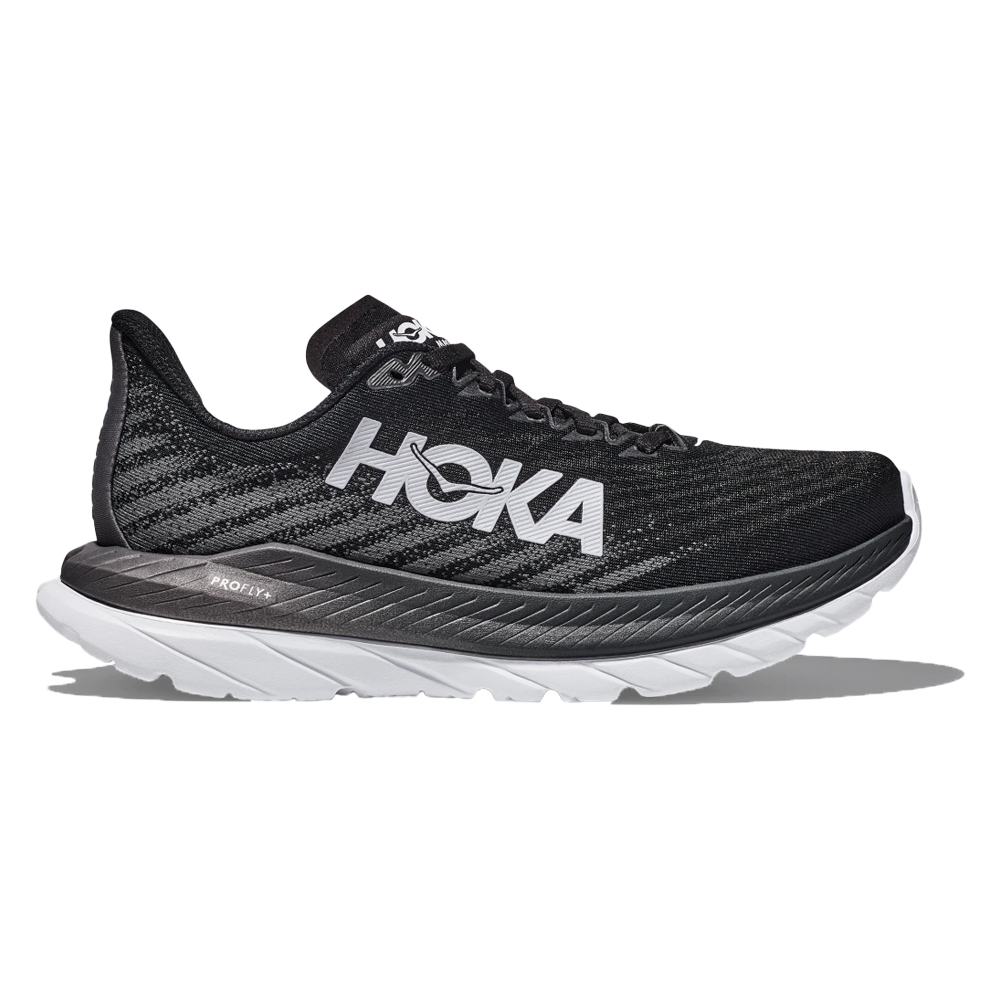
The Hoka Mach 5 features PROFLY+ technology and a redesigned upper, offering superior energy return and a smooth ride. It’s versatile for training and racing, pushing innovation further from the successful Mach 4.
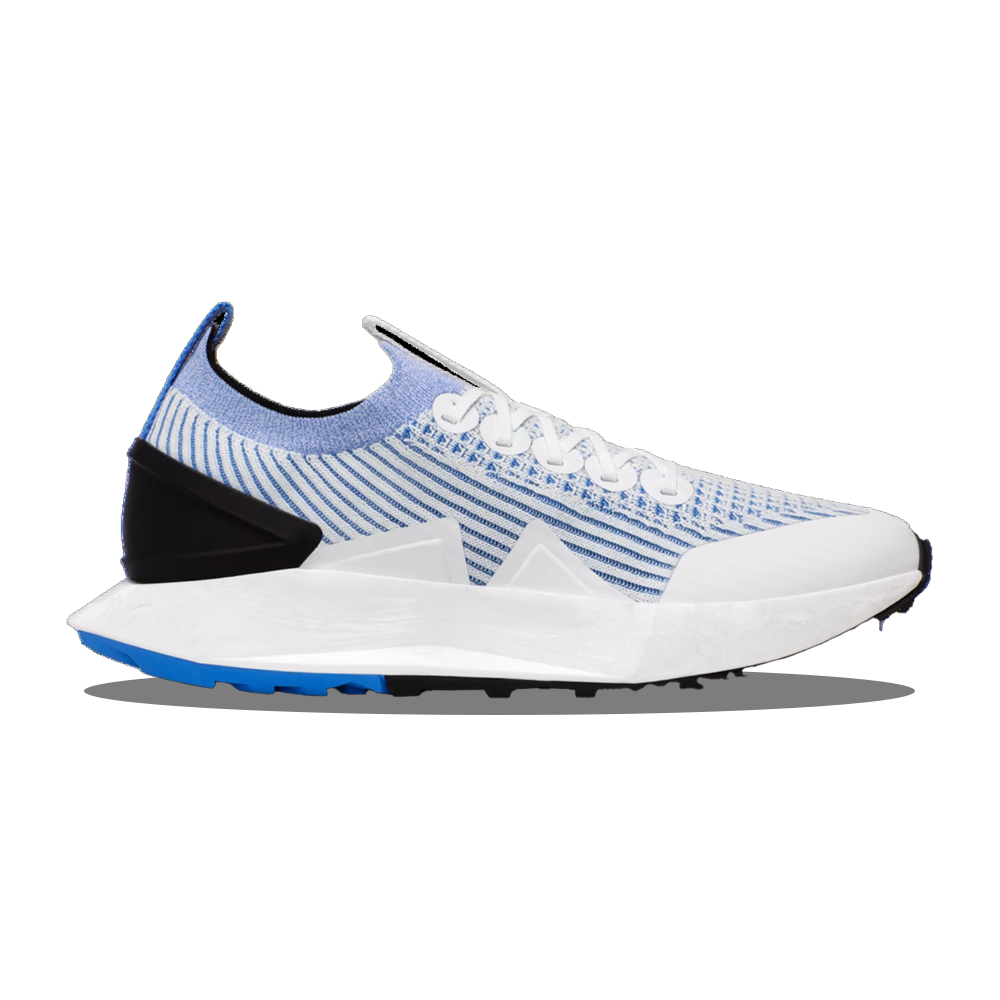
The Allbirds Tree Flyer 2, now positioned as a daily trainer, offers enhanced durability and support with improved upper lockdown. It provides sufficient energy return for up to 10K runs and doubles as stylish streetwear.
Best overall

Saucony Endorphin Speed 4
Saucony's Endorphin Collection has been a runaway hit, especially the Endorphin Speed line, loved for its balance of comfort and performance.
With the Endorphin Speed 4, Saucony seems to have nailed the winning formula for a versatile daily trainer. It builds upon the success of its predecessor, the Endorphin Speed 3, refining every aspect to create a shoe that feels just right from the moment you slip it on.
Featuring classic Saucony technologies like SPEEDROLL and PWRRUN PB 'superfoam', the Endorphin Speed 4 offers a responsive ride with a stable feel. The re-engineered winged nylon plate and Super Responsive Sockliner add to the shoe's performance, while the zonal mesh upper provides a snug and connected fit without any discomfort.
The lace cage construction ensures a secure fit, making the shoes disappear on your feet during runs. Whether you're tackling faster paces or longer distances, the Endorphin Speed 4 delivers a peppy ride with excellent stability and ground feel.
Thanks to its impressive features and impeccable fit, we think the Saucony Endorphin Speed 4 is the best running shoe of 2024 so far!
Read our full Saucony Endorphin Speed 4 review.
Best daily trainers
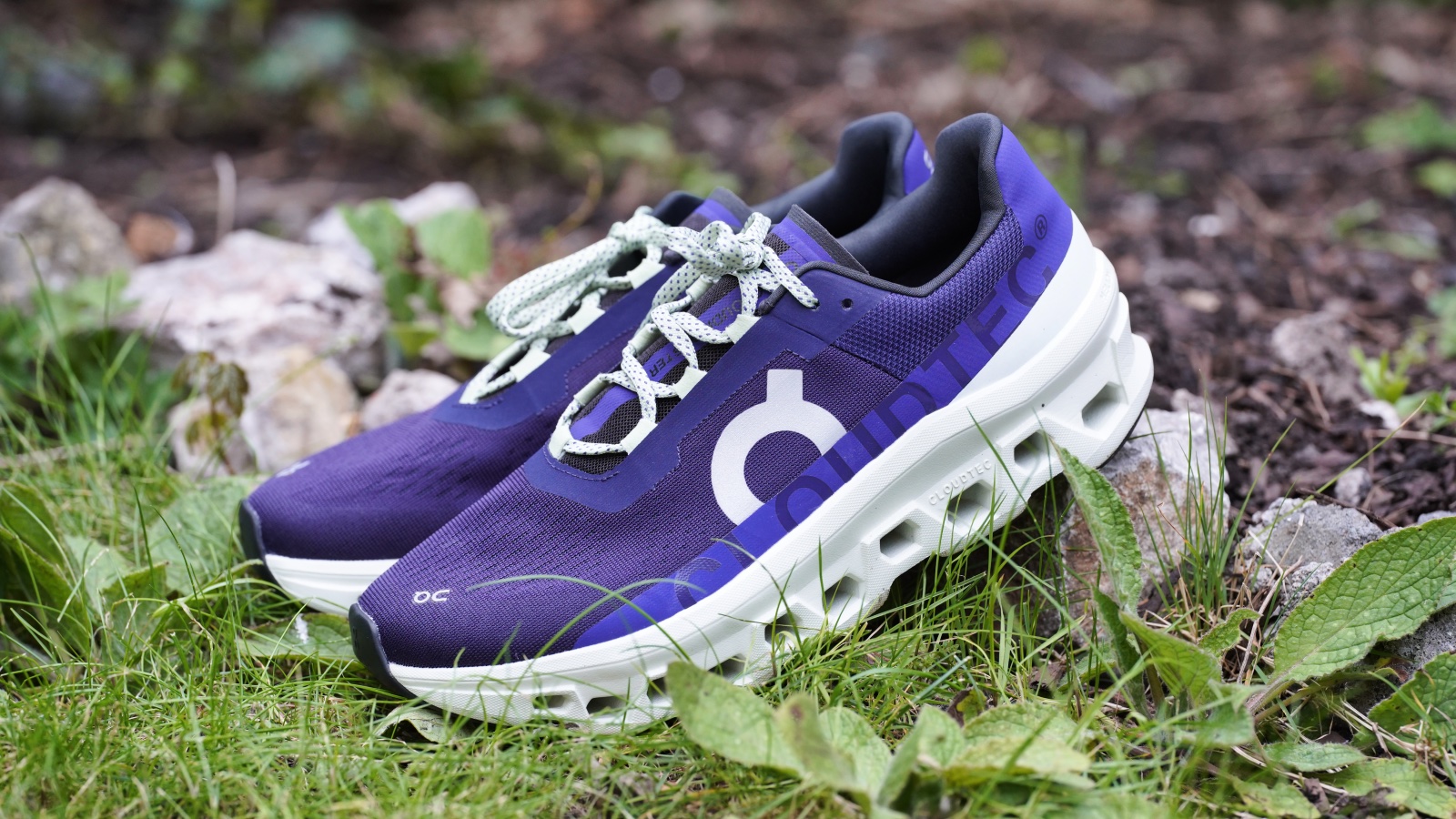
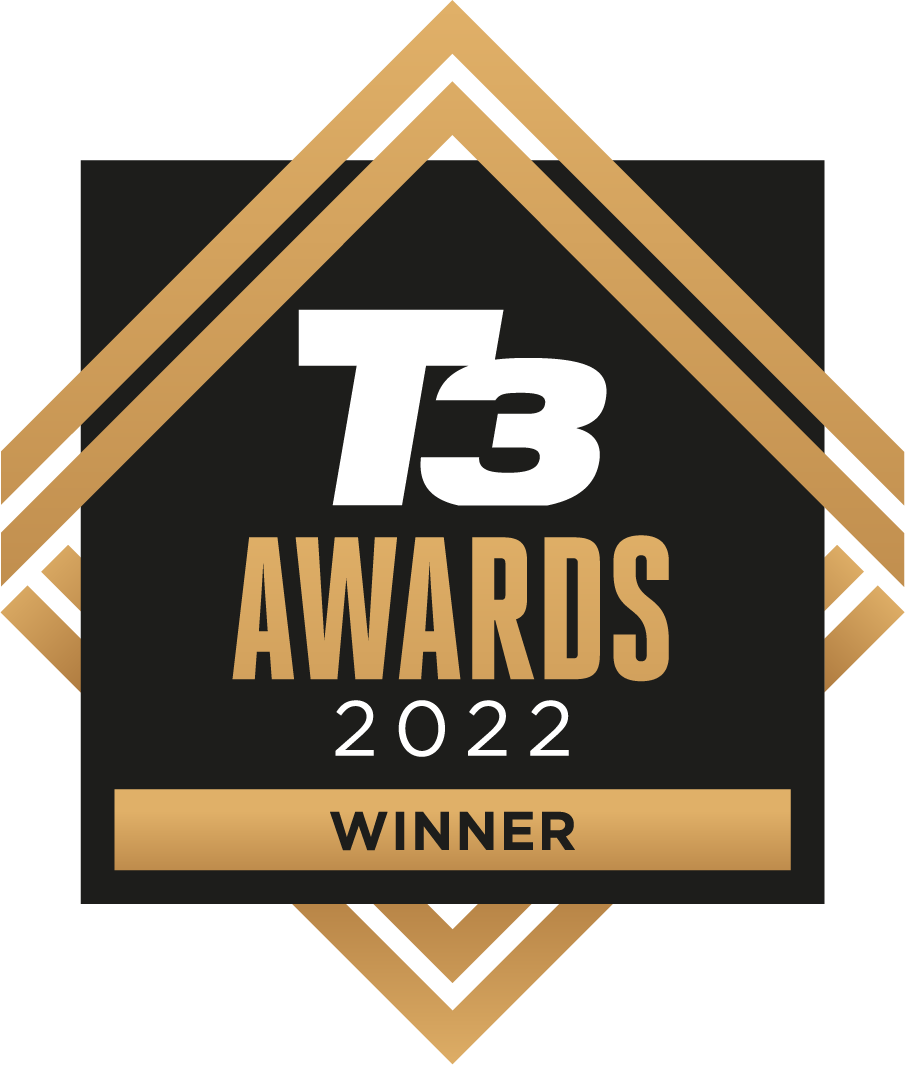
On Cloudmonster
What makes the On Cloudmonster our top choice for the best daily trainers? Three things. Firstly, it features the softest foam from On to date. Secondly, it looks devilishly handsome on foot. Finally, it offers the ideal blend of energy return and cushioning. It's not the softest running shoe on the market, but we liked it. A lot.
As well as featuring a dual layer of Cloud elements, the Cloudmonster also has an embedded Speedboard plate to help carry you forward over long distances. The upper is tight, but not too tight to suffocate your feet. The colours and over-the-top lettering make the shoes stand out from the crowd. The On Cloudmonster is recommended for runners who prefer a bit of firmness and need some hip trainers for long-distance runs.
Read our full On Cloudmoster review
Also consider: The On Cloudboom Echo 3 is an excellent running shoe with a fully recyclable, peppy and responsive midsole foam, a comfortable and secure upper, and a handsome design. The sparsely applied rubber outsole might compromise durability, but overall, this is one of the best, most beautiful super shoes on the market these days.
Best for plantar fasciitis
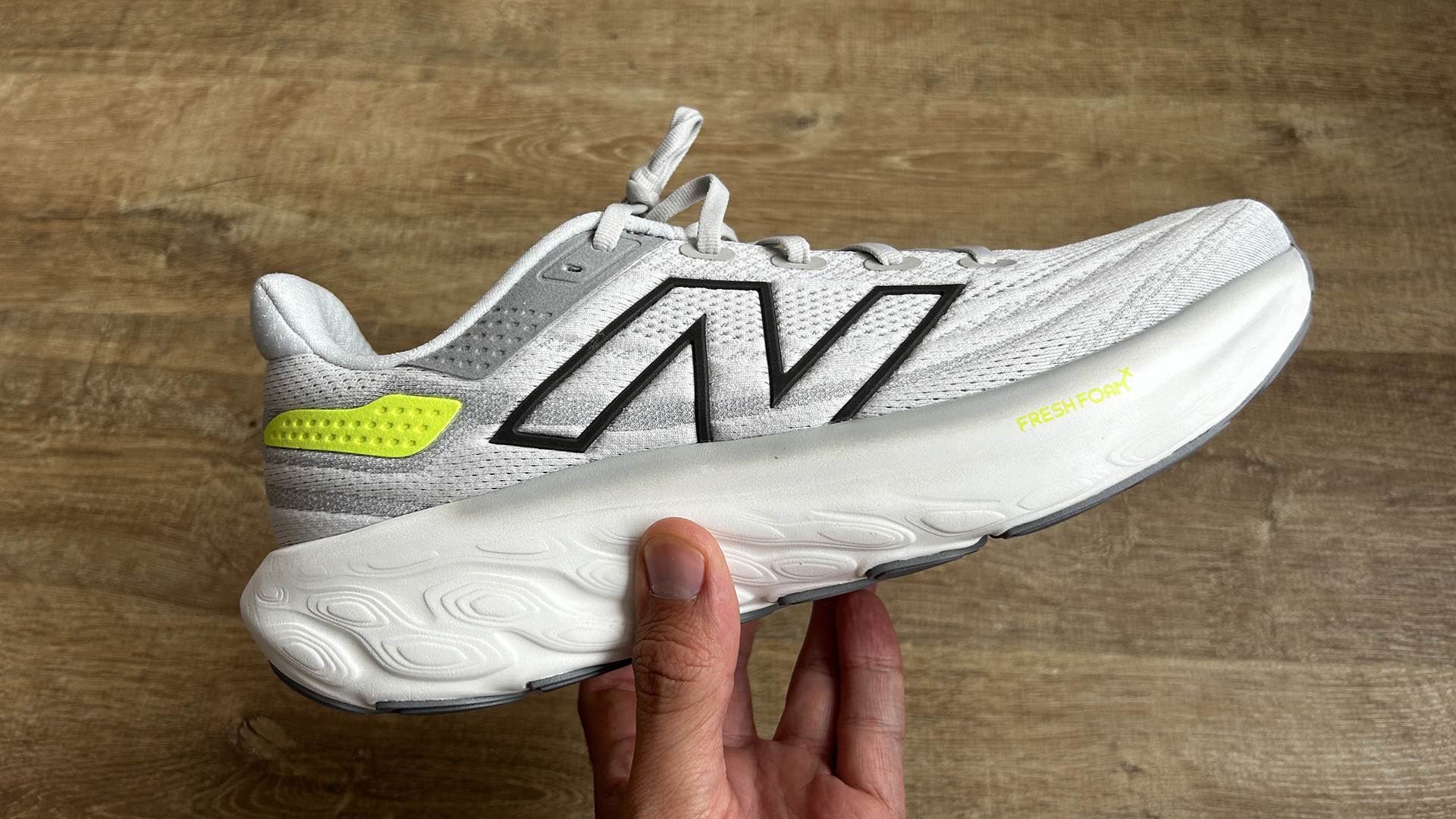
New Balance Fresh Foam X 1080v13
Building on the success of its predecessor, the New Balance 1080v13 refines the Fresh Foam X midsole platform with improved forefoot stiffness and a more pronounced rocker profile, enhancing forward motion efficiency.
The redesigned rubber outsole pattern offers enhanced grip, contributing to a more responsive and energetic running experience. The plush cushioning and accommodating mesh upper make these shoes versatile for various activities, from walking to racing, especially for those suffering from plantar fasciitis.
Despite its focus on cushioning, the 1080v13 surprises with its peppy performance and solid grip, making it a well-rounded choice for daily wear. With its blend of comfort, responsiveness, and versatility, the New Balance Fresh Foam X 1080v13 earns its place as a top contender in the running shoe market.
Read our full New Balance Fresh Foam X 1080v13 review.
Also consider: the New Balance Fresh Foam X 1080v12 is another entry to its long-running 1080 franchise and turns these plush trainers into a must-have training partner for long runs.
Best for recovery


ASICS Gel-Nimbus 26
While 2024's updates aren't as groundbreaking as previous iterations, the Gel-Nimbus 26 builds upon its predecessor's success with improved traction and midfoot lockdown while maintaining its signature cushioning.
Introduced in the Gel-Nimbus 25, the PureGEL technology and FF BLAST PLUS ECO foam still provide plush cushioning and sustainability. Adding to these, the Gel-Nimbus 26 adds the Hybrid Asicsgrip technology for enhanced traction and durability, along with an engineered knit upper for better midfoot support.
Despite its plush cushioning and supportive fit, the Gel-Nimbus 26 remains a bit squishy and not designed for speed, making it ideal for slow, steady runs and recovery sessions.
While not a significant overhaul, the Gel-Nimbus 26 offers incremental improvements over its predecessor, making it a worthy consideration for those seeking reliable cushioned trainers.
Read our full ASICS Gel-Nimbus 26 review.
Best affordable
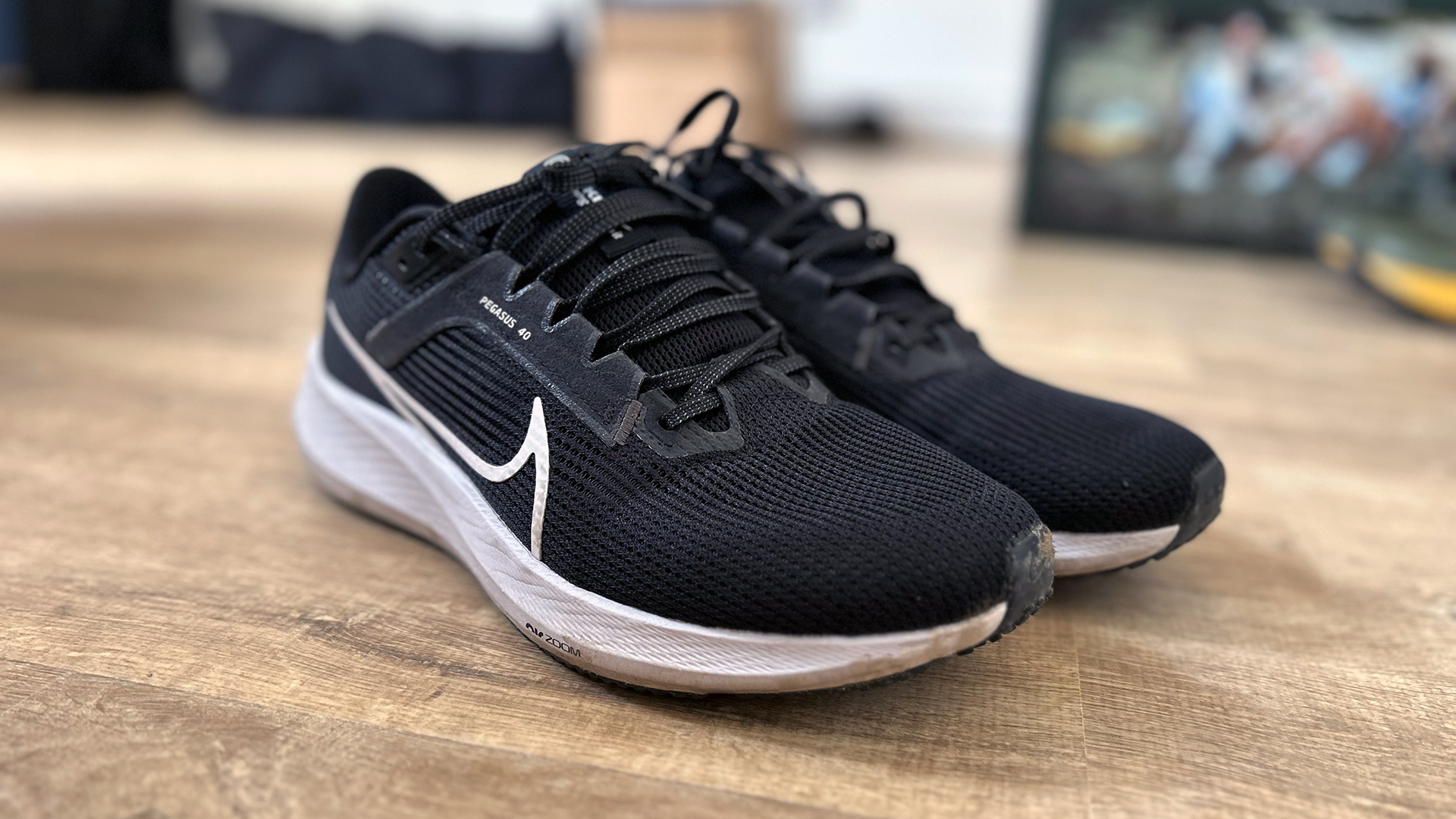
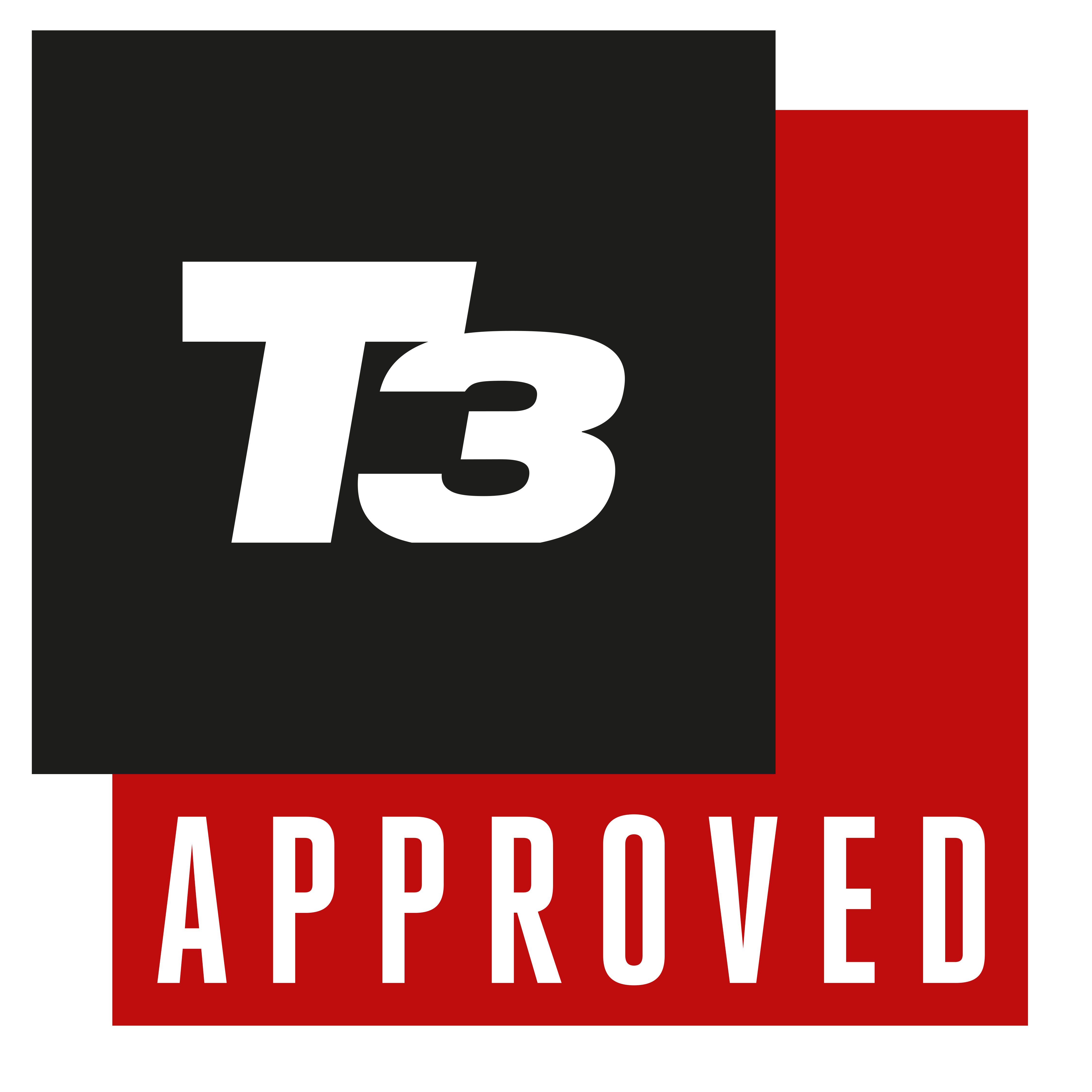
Nike Pegasus 40
The Nike Pegasus 40 isn't a groundbreaking running shoe, but rather a gradual evolution of a line known for consistently delivering top-notch daily trainers for recreational runners. It remains versatile, offering comfort, responsiveness, and a touch of style.
Enhanced fit and ergonomics make the Pegasus 40 the most comfortable version yet, with improved breathability and step-in comfort. Importantly, its running experience remains virtually unchanged, a positive for those seeking reliable everyday trainers. Recommended for anyone in need of quality footwear for daily use.
Read our full Nike Pegasus 40 review.
Also consider: The Nike Air Zoom Pegasus 39 is very similar to the Peg 40 and is a brilliant and reasonably-priced daily trainer that enjoys moderate tempo sessions the most, thanks to the addition of an extra Air Zoom unit and more React foam. Time to fly!
Best stability
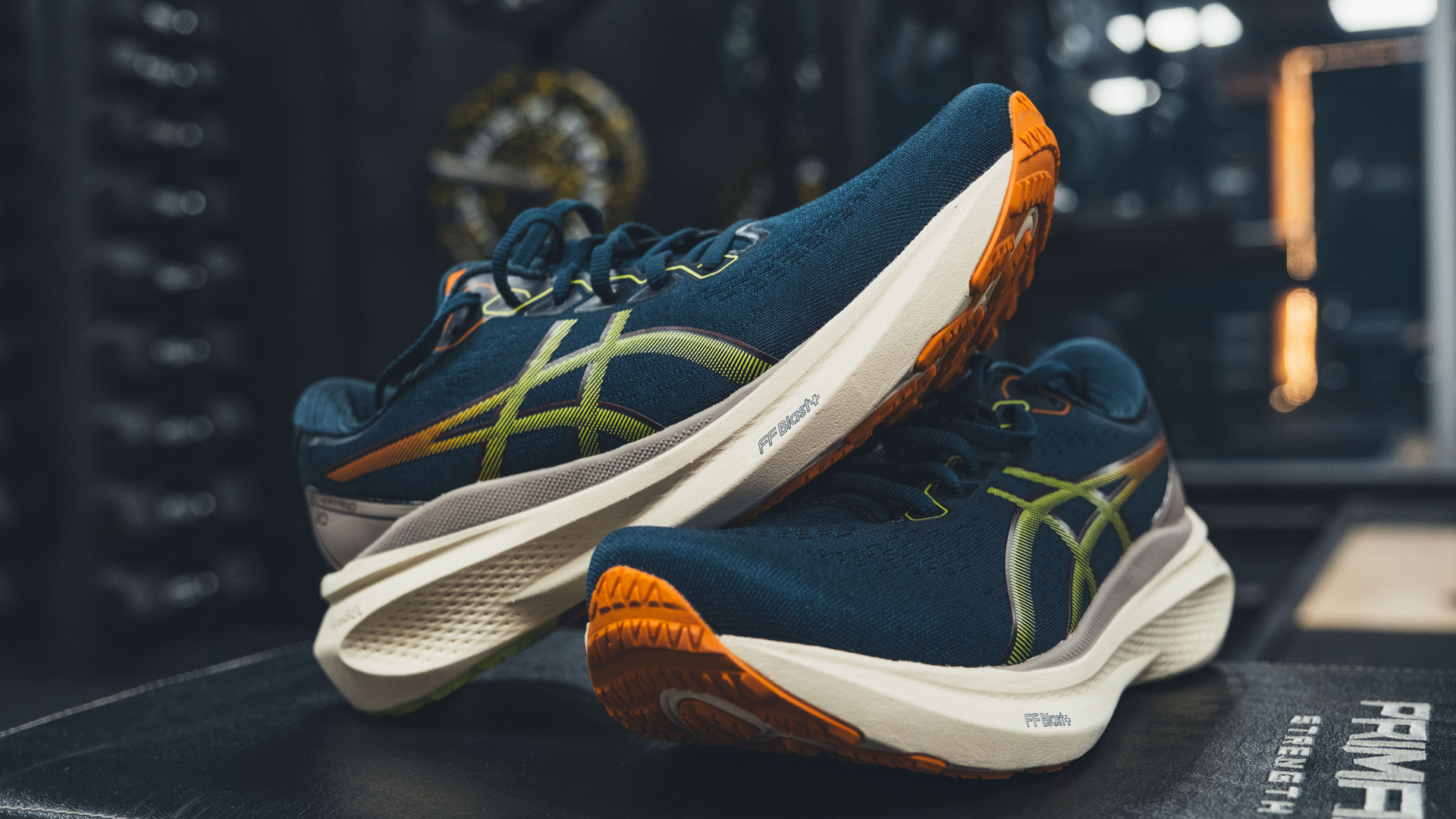

Asics Gel-Kayano 30
Asics has reimagined the Kayano range, a long-standing favourite for runners needing stability due to overpronation. In its 30th iteration, Asics simplified the design, integrating support directly and enhancing comfort with additional foam and a revamped upper.
While some may miss the previous models' distinct support features, this streamlined approach makes the Gel Kayano 30 more inclusive for a broader range of runners. Support remains ample but more subtle, ensuring a lively and enjoyable running experience without compromising on stability.
Neutral runners may not fully utilise the 4D Guidance system, but it proves invaluable for those with overpronation.
Read our full Asics Gel-Kayano 30 review.
Best tempo shoes
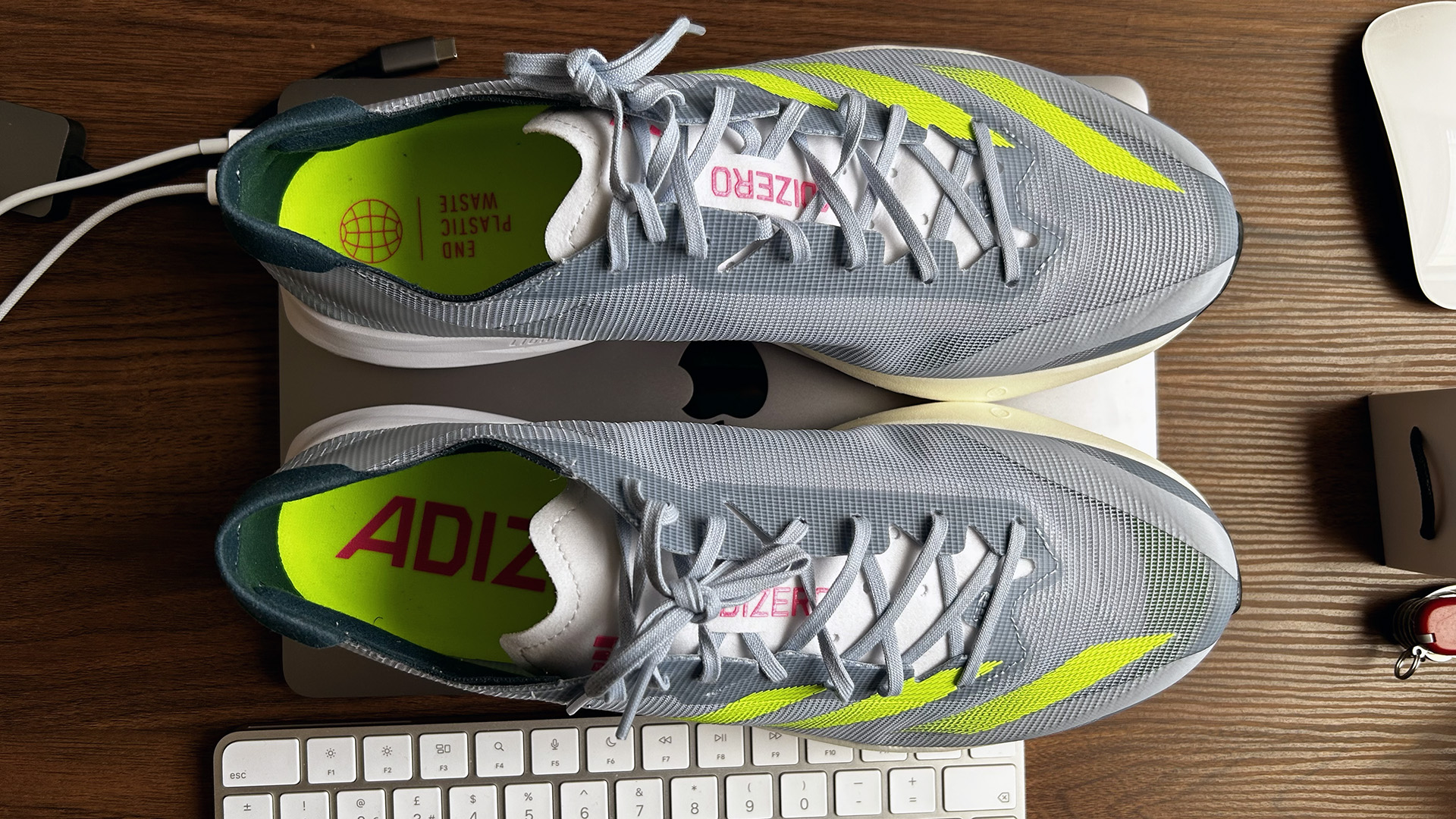

Adidas Adizero Adios 8
The Adidas Adizero Adios 8 is a standout choice for runners seeking a versatile shoe suitable for both training and occasional racing, particularly those who prefer a more controlled running style. The redesigned mesh upper offers targeted support, though it may pose a challenge to put on due to its tightness.
With a blend of Lightstrike 2.0 and Lightstrike Pro foams, the shoe strikes a perfect balance between cushioning and responsiveness. The updated Energytorsion Rod 2.0 system, featuring an additional third rod, enhances toe-off snap. While not on-apr with high-stack racers, the Adizero Adios 8 delivers agility, responsiveness, and a sense of speed control favoured by many runners.
Read our full Adidas Adizero Adios 8 review.
Browse our adidas discount codes to bag a saving on your purchase.
Best for marathons
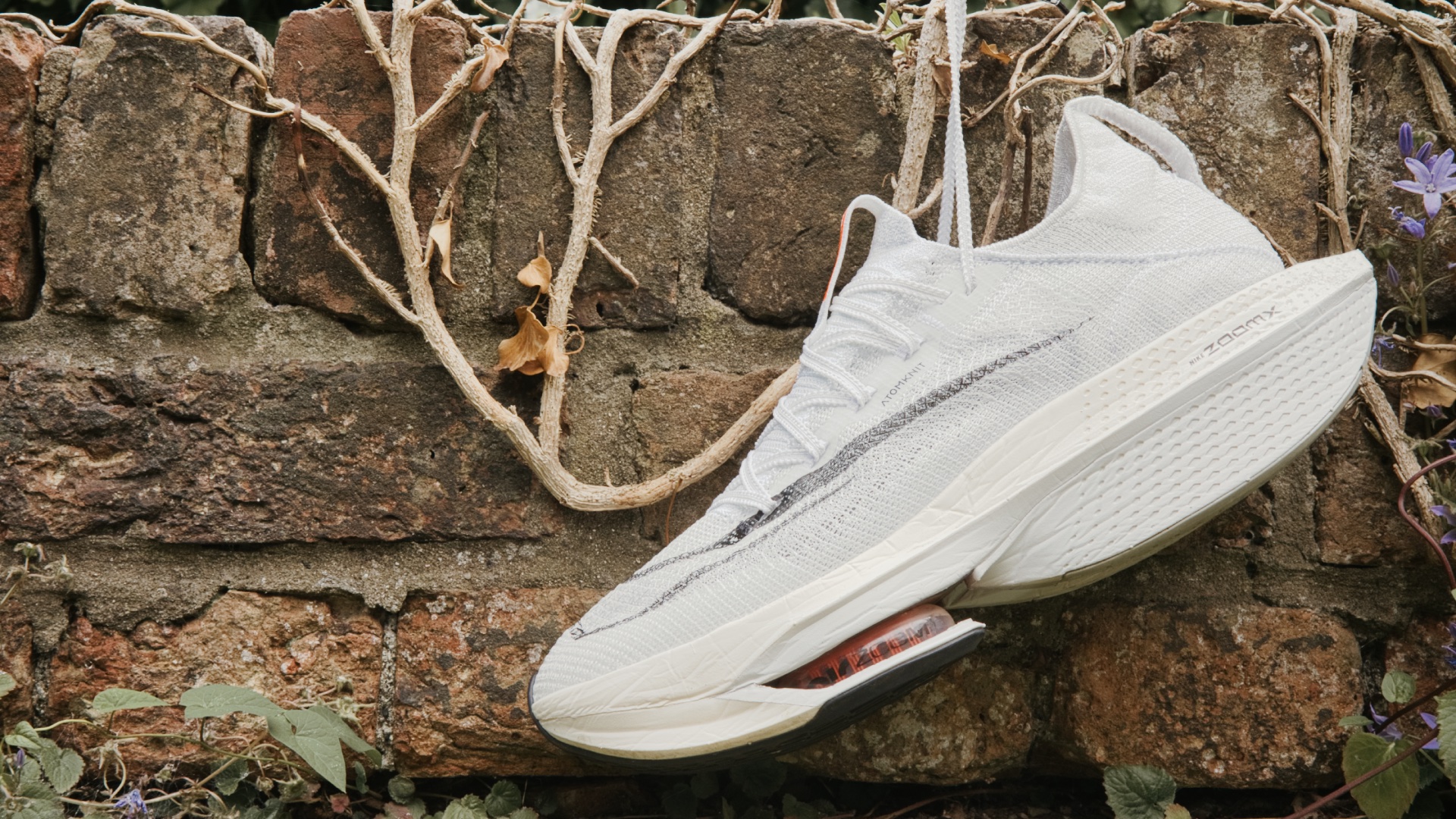
Nike Alphafly 2
The Nike Alphafly 2 is a superb running shoe. If you're a fast runner looking for marginal gains, you'll need the Alphafly 2 to break your PBs. For less speedy runners, many alternatives could help you move forward faster that cost much less than the Alphafly 2, making it harder to recommend the shoes for all runners.
That said, the Nike Air Zoom Alphafly NEXT% 2 running shoes aren't only brilliant in propelling you forward mile after mile. Still, they are also an excellent update to the immensely popular first iteration, thanks to the updated Atomknit 2.0 upper and reworked midsole. Expect to see these racers crop up on podiums in upcoming marathon majors.
Read our full Nike Air Zoom Alphafly NEXT%2 review.
Best for half marathons
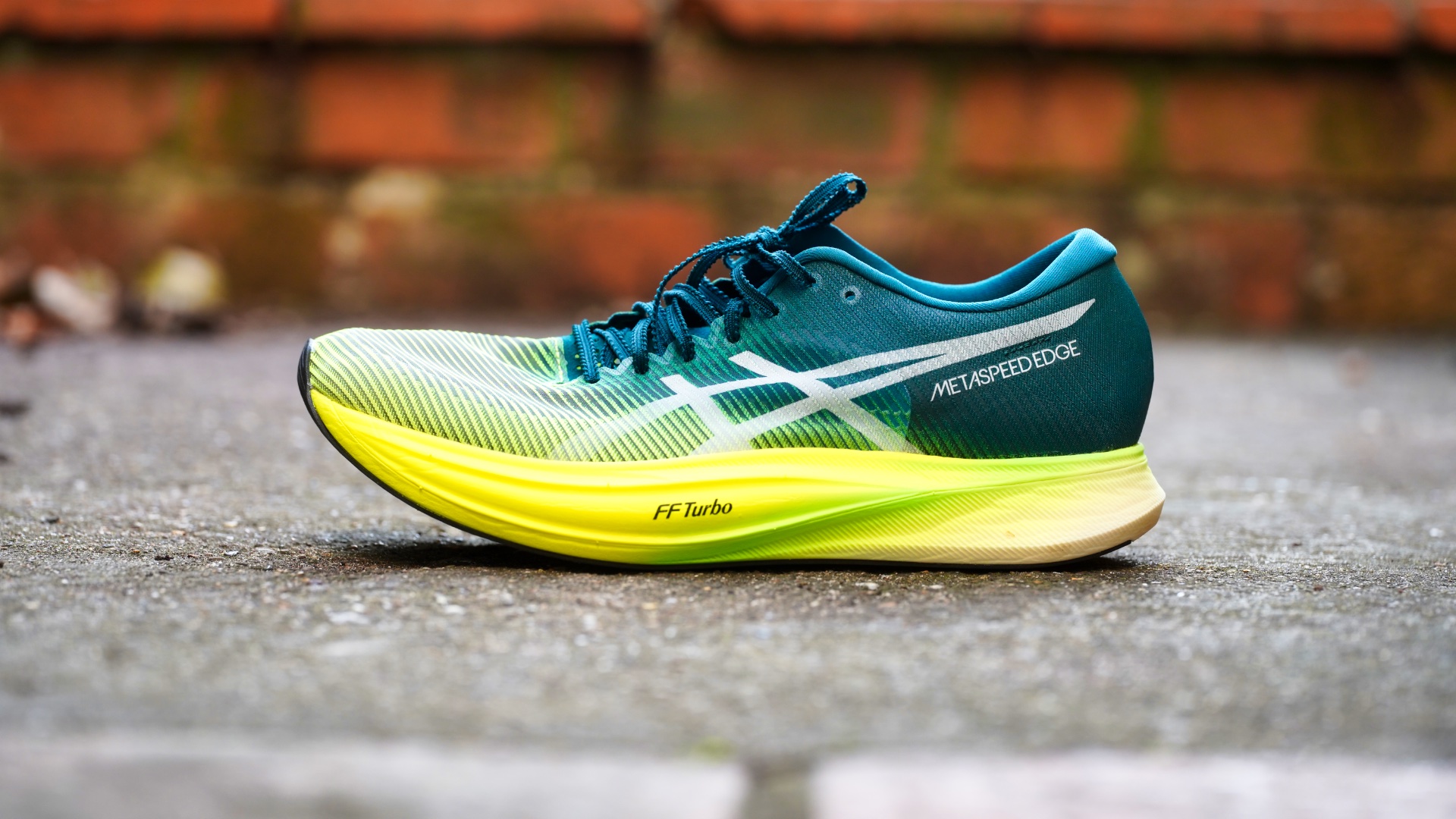
Asics Metaspeed Edge Plus
With its increased stack height and optimised carbon plate placement, the EDGE+ emerges as a formidable racing shoe, ideal for runners aiming to achieve personal bests in marathon events. While it excels in half-marathon distances, the SKY+ model may be preferable for full marathons, with subtle distinctions especially notable for elite runners.
The utilisation of FF BLAST TURBO foam enhances lightness and responsiveness, offering exceptional energy return across various distances. Moreover, improvements to the upper design and laces contribute to heightened comfort. Overall, the ASICS METASPEED EDGE+ represents a significant evolution from its predecessor, delivering enhancements in all the right areas.
Read our full ASICS METASPEED EDGE+ review.
Also consider: the ASICS METASPEED SKY+ provides a similar running experience to the Nike Vaporfly, which means the shoes feel less in control than the EDGE+, but in return, you get better bounce and, probably, better energy return over long distances.
Best Super Trainers
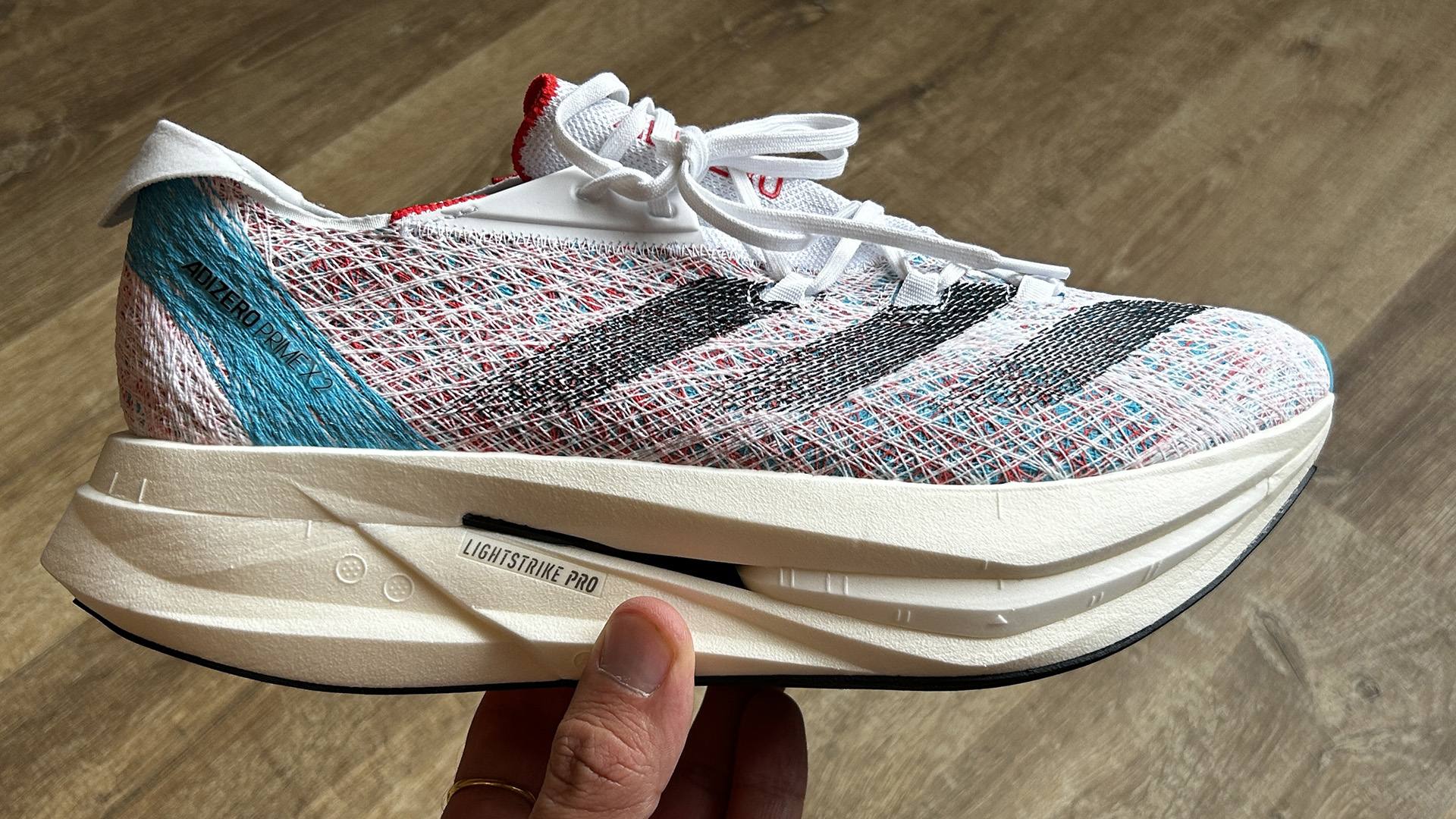

Adidas Adizero Prime X 2 Strung
The Adidas Adizero Prime X 2 Strung is a remarkable super trainer (see also: what are Super Trainers?) that impresses from the moment you unbox it. Featuring the innovative Strung upper and a stack of advanced technologies, these shoes offer an unparalleled running experience.
With a sleek design and enhanced features like a knitted tongue and dual carbon-infused plates, they provide a perfect blend of comfort and performance. The increased stack height and Lightstrike Pro foam deliver exceptional cushioning and energy return, propelling you forward with each stride.
While the price may be a deterrent for some, the Adizero Prime X 2 Strung's superior quality and performance make it a worthwhile investment for serious runners seeking to push their limits and achieve new milestones.
Read our full Adidas Adizero Prime X 2 Strung review.
Also consider: try the Saucony Kinvara Pro for a different Super Trainer experience. It has a similar running dynamic to the Endorphin Speed 3 and the Endorphin Pro 3 and a very accommodating upper. It might be one of the most expensive 'super trainers' on the market today, but if you're a fan of the brand, you should most certainly try the Kinvara Pro.
Best lightweight
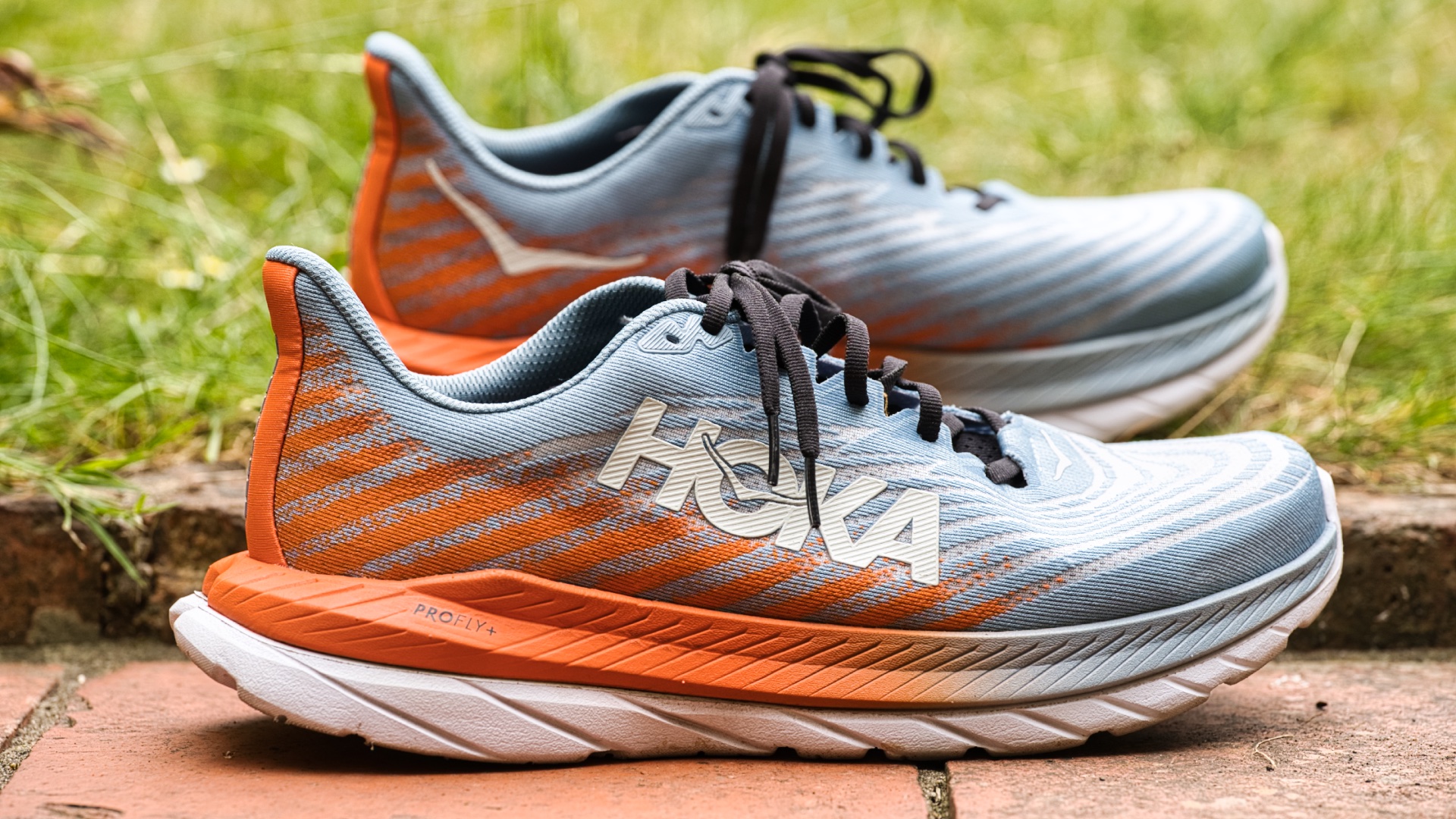

Hoka Mach 5
The Hoka Mach 5 epitomises Hoka's commitment to continuous innovation, achieving a remarkable level of excellence with few areas for criticism—a notable feat in itself.
Following the triumph of the Hoka Mach 4, the brand could have opted for minor adjustments and still maintained success. Instead, the company chose to push boundaries further by introducing the Mach Supersonic with PROFLY+ technology and subsequently integrating this new foam into the Hoka Mach 5.
With the incorporation of the new foam and a redesigned upper, the Hoka Mach 5 offers a refreshingly distinct feel from its predecessor, albeit with a sense of familiarity. Providing superior energy return and a smoother ride, this shoe is remarkably versatile for both training and racing, particularly considering its price point.
Read our full Hoka Mach 5 review.
Also consider: the Hoka Mach X is a chunkier, plated version of the Mach 5 and is cheaper than similar super trainers, notably the Saucony Kinvara Pro or the New Balance SuperComp Trainer 2.0, yet offers a similar running experience, which means it's a better option for people on a tight budget. You can't dismiss the Hoka Mach X if you can only afford one shoe for training and racing and yearn for that super trainer experience.
Best sustainable
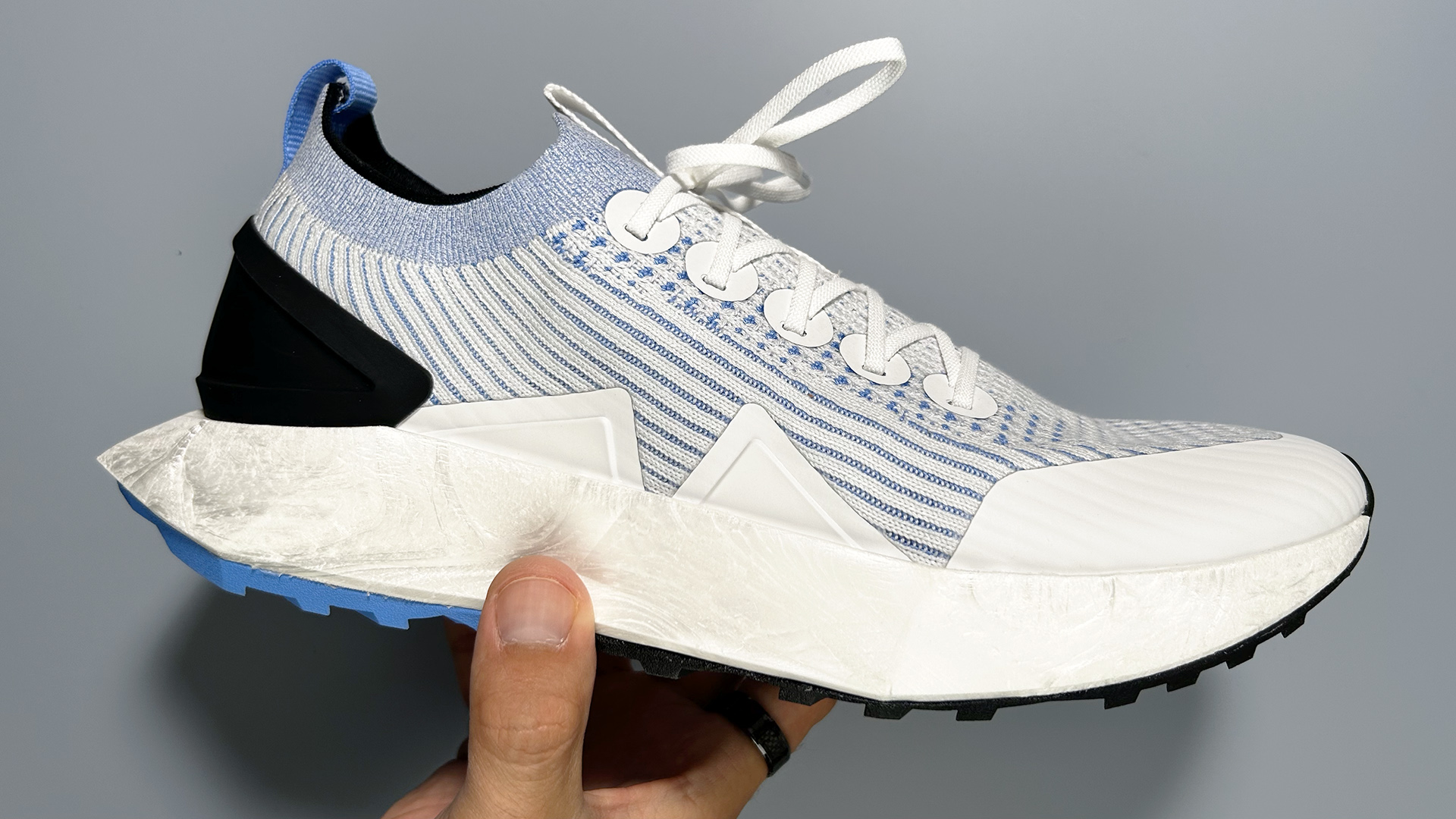
Allbirds Tree Flyer 2
The Allbirds Tree Flyer 2 represents a notable improvement over its predecessor as a running shoe. Enhanced lockdown and reinforced areas in the upper promise increased durability and secure foot support. While the foam offers commendable energy, it may lack the responsiveness of certain other tempo trainers.
Allbirds' decision to reposition the Tree Flyer franchise as a daily trainer is a strategic move, aligning the shoes more appropriately within the market segment. With sufficient energy return for runs up to 10K, the Tree Flyer 2 boasts versatility, doubling as a stylish streetwear option—an added advantage for wearers.
Read our full Allbirds Tree Flyer 2 review.
How to choose the best running shoes for you
Choosing the best running shoes for you involves considering several key factors to ensure a comfortable and supportive fit tailored to your individual needs.
It's essential to determine your running gait and foot type. You can do this by visiting a specialty running store or, alternatively, using online resources to analyse your stride. Understanding whether you have a neutral, overpronating, or underpronating gait will help guide your shoe selection.
Consider the type of terrain you'll primarily be running on. Different shoes are designed for road running, trail running, or a combination of both. If you'll be running on uneven terrain or trails, opt for shoes with rugged outsoles and enhanced stability features to provide adequate traction and support.
(Our best trail running shoes guide can help you pick an appropriate option for off-road adventures).
Another crucial factor is cushioning and support. Depending on your running style and preferences, you may prefer shoes with ample cushioning for shock absorption or a more minimalistic design for a more natural feel. Look for features such as midsole technologies (e.g., EVA foam, Gel cushioning) and supportive structures (e.g., medial posts, stability shanks) that align with your comfort and support needs.
Consider factors like shoe size, width, and overall fit. It's essential to choose shoes that provide enough room for your toes to splay naturally and prevent discomfort or blisters during long runs. Pay attention to the heel counter and ankle collar to ensure a snug yet comfortable fit that minimises slippage and irritation.
How we test the best running shoes
By running in them, of course! Matt K, T3's resident running shoe expert, and our other contributors meticulously analyse each shoe to ensure they are up to code. Some of the criteria that we check are step-in comfort, ergonomics, padding, cushioning, technology involved, design, aesthetics, and, of course, running dynamics.
We also verify manufacturer claims about performance details such as 'twice as fast as its predecessor' or 'improved heel lockdown', where applicable. If it's not possible, we'll refer to these features as 'manufacturer claims'. Another thing we'll examine is how to break in running shoes or if they need breaking in the first place.
It's worth mentioning that most people have different running styles, so running shoes that work for one runner might not work for another. Please keep this in mind when reading our reviews.
FAQ
Should a running shoe be a size bigger?
Always check the size charts before you buy any running shoes, even if it's from a brand you've used before. Some brands are infamous for their sizing methods; for example, New Balance shoes tend to be half a size under, so if you wear a size 10 normally, you might want to get a size 10.5 New Balance.
Racing shoes are usually tighter than trainers. The best women's running shoes may also be narrower and lighter than unisex or men's options. If you have wide feet, see if they have wide options available – these tend to have a roomier toe box.
What is energy return in a running shoe?
Running shoe foams will always return some energy, no matter how cushioned they are. How and when (e.g. immediately or delayed) they return this energy is what makes specific running shoes better suited for training, recovery, racing and more.
If you prefer shorter distances (5K-10K), you won't need industrial amounts of cushioning under your feet. For mid-distances (10K-half marathon), you might want to think about having more support and a durable upper to keep your feet in line when your form falls apart at mile 19. As for long distances (anything over a half-marathon distance), you want running shoes with great energy returns yet lightweight and responsive.
Can you use running shoes for gym training?
Having just one pair of shoes for road running, trail running and workouts is tempting; however, we recommend using the appropriate shoes for all occasions. The best trail running shoes will protect your feet on uneven terrain, while the best workout shoes will provide grip and stability in the gym.
Especially if you do heavy lifts in the gym, a cushioned, high-stack running shoe might not be stable enough to provide you with the sturdy platform you need when dangling heavy weights above your head. Similarly, no matter how responsive the best cross-training shoes are, they won't be able to pick a fight with dedicated running shoes on the road.
What's the difference between road running and trail running shoes?
For the unacquainted, running shoes and trail running shoes can look pretty similar: similar enough to think they are interchangeable and work well on both the road and the trail. In reality, both types have specific characteristics that make them perfect for the running surface they were designed for and not-so-great for others.
Take running trainers, for example. These shoes work best when used on hard, smooth surfaces, such as the road: the cushioning is fine-tuned to reduce the impact force when landing on the tarmac, and the upper is tight to keep the foot 'locked in' as you run. The 'stack height of most running shoes is also higher, especially nowadays, to improve energy returns. The outsole also tends to be smoother to increase the surface area of the shoes for better grip.
On the other hand, trail running shoes thrive on uneven surfaces. Off-road shoes have massive lugs on the outsole to claw into soft surfaces (e.g. mud, grass) and usually have an insert in the midsole to protect the feet from rocks and other unexpected obstructions (this insert is aptly named 'rock-shield'). And since the trail is more often slippery and wet than the road, trail shoes have better weather protection and are also heavier in general than road shoes.
To provide an analogue, road shoes are racing cars with their light chassis and fast ergonomics, while trail shoes are 4x4s: robust and heavy but will keep you safe in the forest. Before you buy new running shoes, consider where you will use them the most to avoid disappointment (and injuries) later on.
Is it worth buying expensive running shoes?
Just because a pair of running shoes is expensive, that doesn't mean they are good. That said, cheap running shoes seldom deliver a running experience you might expect from decent running footwear.
What's cheap? If you're taking running training seriously, we would recommend spending around $/£100 on a new pair of running shoes. This might sound quite a lot at first, but running shoes in this category won't fall apart after a few runs and will support your feet for a few years at least.
Is it bad to run without running shoes?
Barefoot running is gaining momentum, especially among athletes who think modern running shoes are detrimental to foot health. Truth to be told, high stack, carbon plate-enhanced running shoes indeed force runners to run in a particular way which might not be the most ideal for at least some percentage of runners out there.
That said, running barefoot takes some getting used to, especially if you usually wear cushioned shoes. Even big-name barefoot brands such as Vivobarefoot (retailer link) recommend easing yourself into barefoot running as it requires you to move very differently compared to when you run in cushioned shoes.
It's recommended to start running shorter distances – as in a couple of hundred meters – at first, then gradually increasing the distance as you get more comfortable. It's also beneficial to run on softer surfaces such as grass or sandy beach at first, as these might mitigate impact force better than landing hard on tarmac.
As for running in sneakers, these shoes lack support and cushioning, and by running in them, you can end up hurting your feet more than running barefoot.
In sneakers, just like in running shoes, your sole is far away from the ground. However, the thick foam doesn't provide anatomical support (as in the case of running shoes). If anything, it prevents you from being able to stabilise your body yourself, which will confuse and tire out muscles.
When to replace your running shoes?
Sadly, running shoes won't last forever. As a general rule of thumb, most running shoes need replacing after 3-500 miles, depending on how intensely you use them, how much you weigh, and how well you look after them. To clarify, your shoes won't fall apart after 300 miles; it's more to do with the lifecycle of the foam – after a while, it will return less energy, which might compromise running form and make you run slower.
Some people will experience the upper giving in first – depending on where the holes appear, you might want to consider changing to a larger size (if the toes poke through the front of the upper) or picking shoes that are better suited for wide feet (the lateral side of the upper frays). If your heels rub, you might have narrow feet; you should consider sizing up and checking for narrow-fit shoes.
Which brand is best for running shoes?
There are many excellent running shoe brands to choose from, including Nike, Adidas, On Running, Brooks, ASICS, New Balance, Saucony, Puma, Hoka, Under Armour and more. Most mainstream sports brands have decent running shoes, not just one, but many. Which one to choose comes down to personal preference, aesthetics, running economy, etc. We recommend choosing running shoes based on running performance, not looks, to ensure they'll support you for years to come.
Sign up to the T3 newsletter for smarter living straight to your inbox
Get all the latest news, reviews, deals and buying guides on gorgeous tech, home and active products from the T3 experts

Matt Kollat is a journalist and content creator who works for T3.com and its magazine counterpart as an Active Editor. His areas of expertise include wearables, drones, fitness equipment, nutrition and outdoor gear. He joined T3 in 2019. His byline appears in several publications, including Techradar and Fit&Well, and more. Matt also collaborated with other content creators (e.g. Garage Gym Reviews) and judged many awards, such as the European Specialist Sports Nutrition Alliance's ESSNawards. When he isn't working out, running or cycling, you'll find him roaming the countryside and trying out new podcasting and content creation equipment.
-
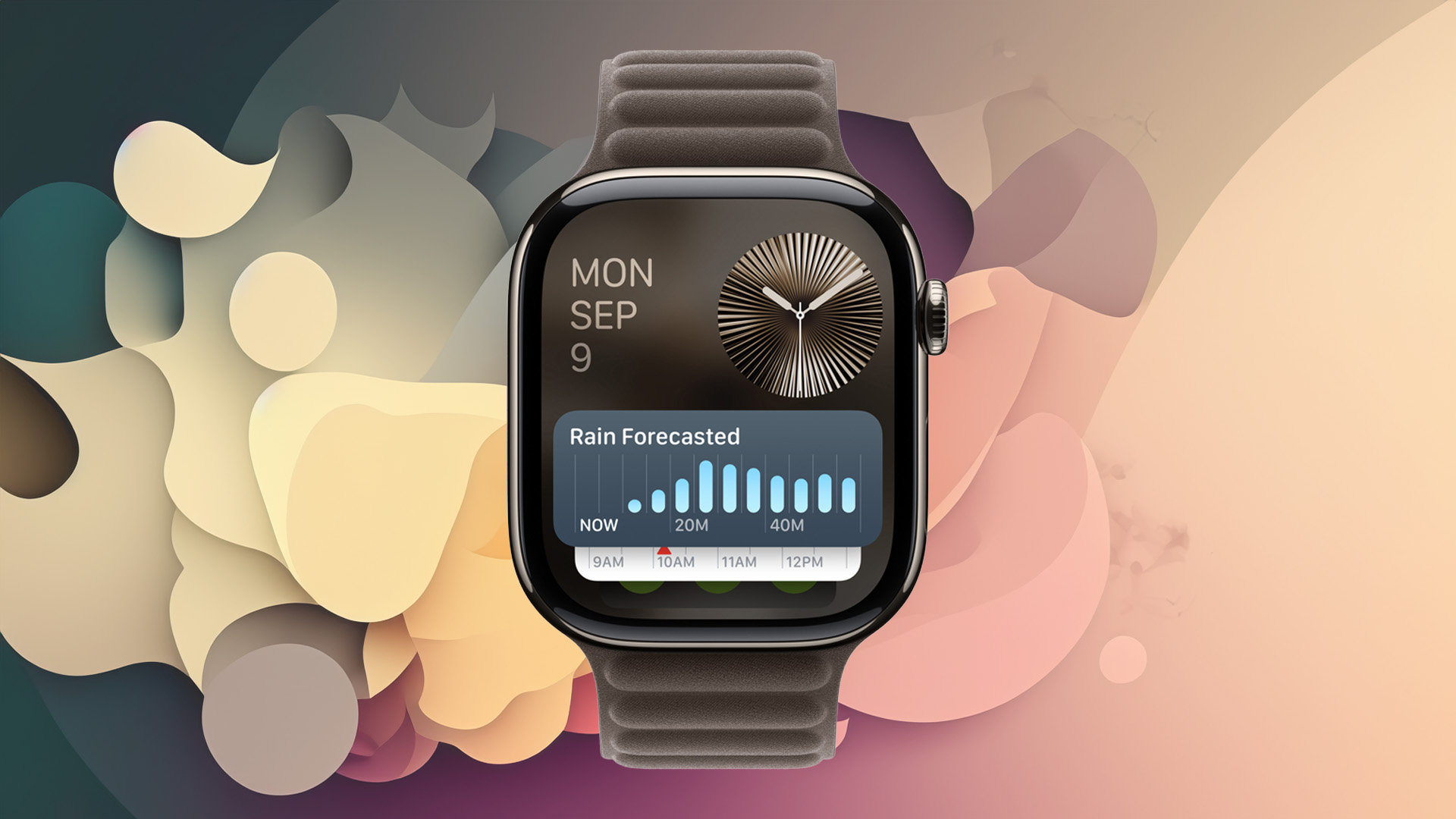 Apple Watch is set to get Apple Intelligence this year, but only with a little help from a friend
Apple Watch is set to get Apple Intelligence this year, but only with a little help from a friendBring on watchOS 12
By Britta O'Boyle
-
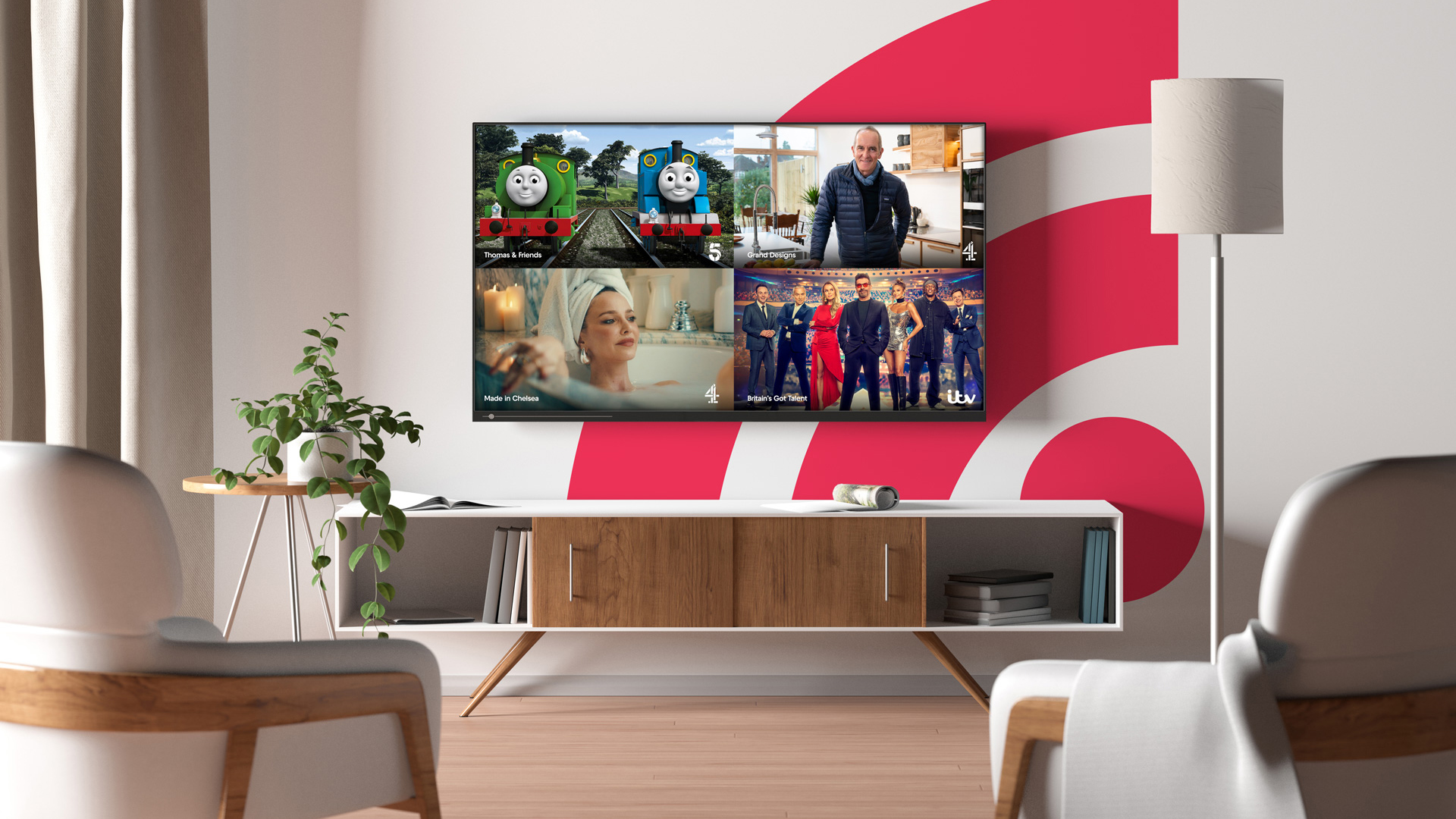 Your Smart TV might be getting 16 new channels for free – here's how to check
Your Smart TV might be getting 16 new channels for free – here's how to checkTVs with Freely will be able to stream a host of new channels "in the coming month"
By Rik Henderson
-
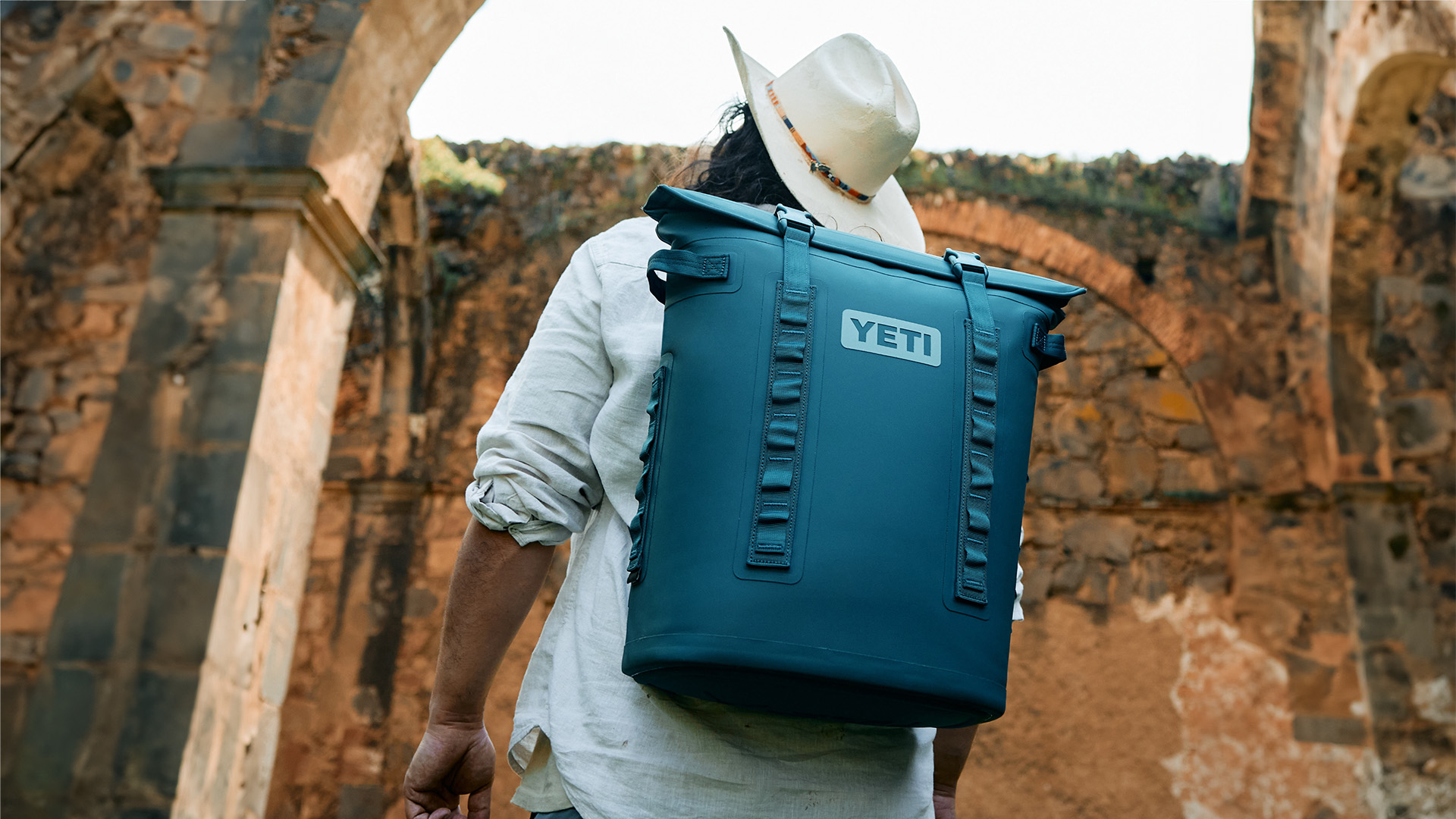 Best YETI coolers 2025: ice cold excellence
Best YETI coolers 2025: ice cold excellenceKeep food and beverage frosty with our curated selection of top-rated YETI coolers for every occasion
By Matt Kollat
-
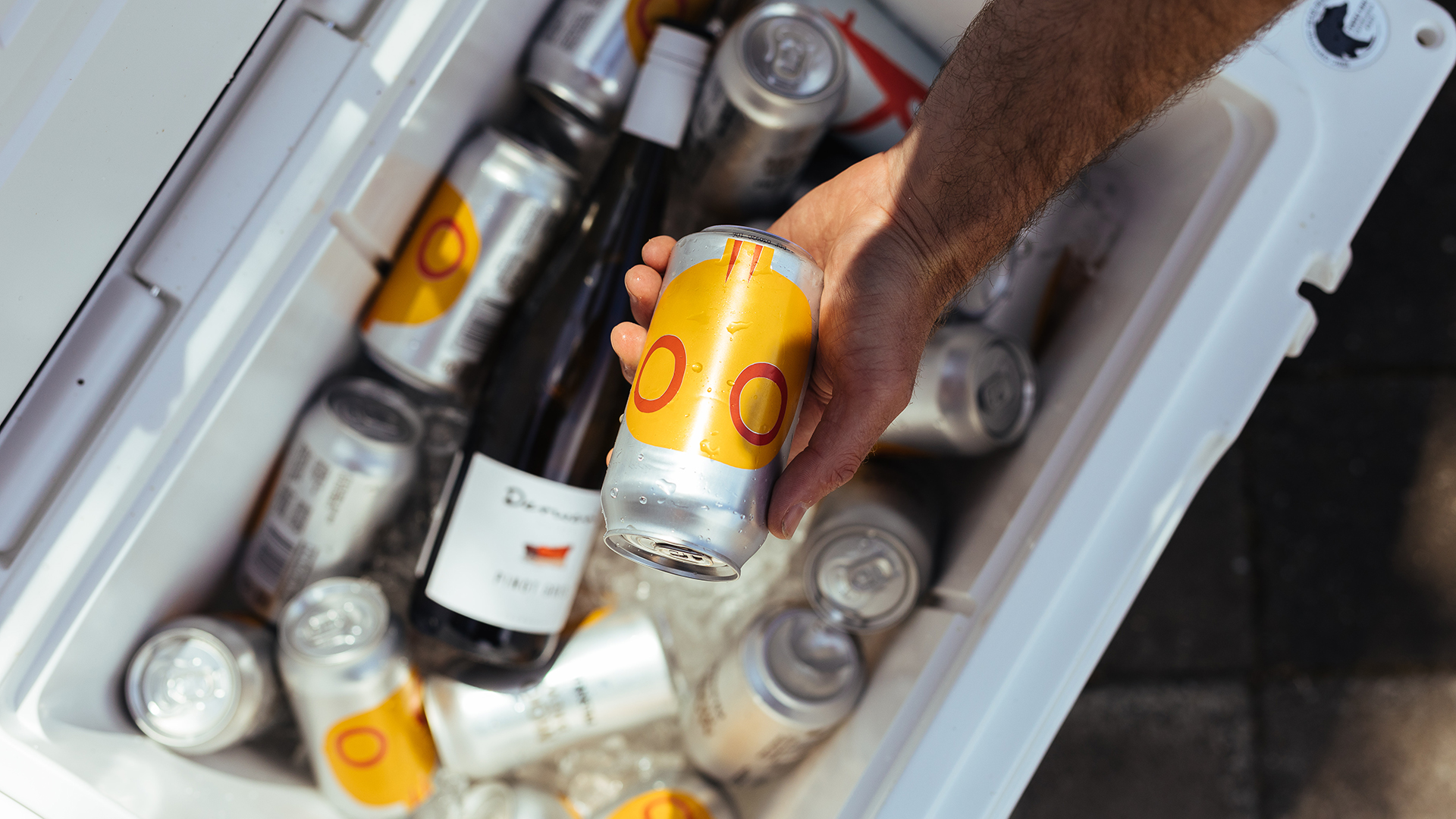 Best cool box for camping 2025: keep your food and drinks cool and fresh
Best cool box for camping 2025: keep your food and drinks cool and freshBrowse the best cool boxes, cool bags and electric coolers for camping, festivals, picnics and balmy days at the beach
By Matt Kollat
-
 Best smart ring 2025: compact, lightweight health-tracking wearables
Best smart ring 2025: compact, lightweight health-tracking wearablesExperience wearable innovation at your fingertips with the best smart rings available now
By Matt Kollat
-
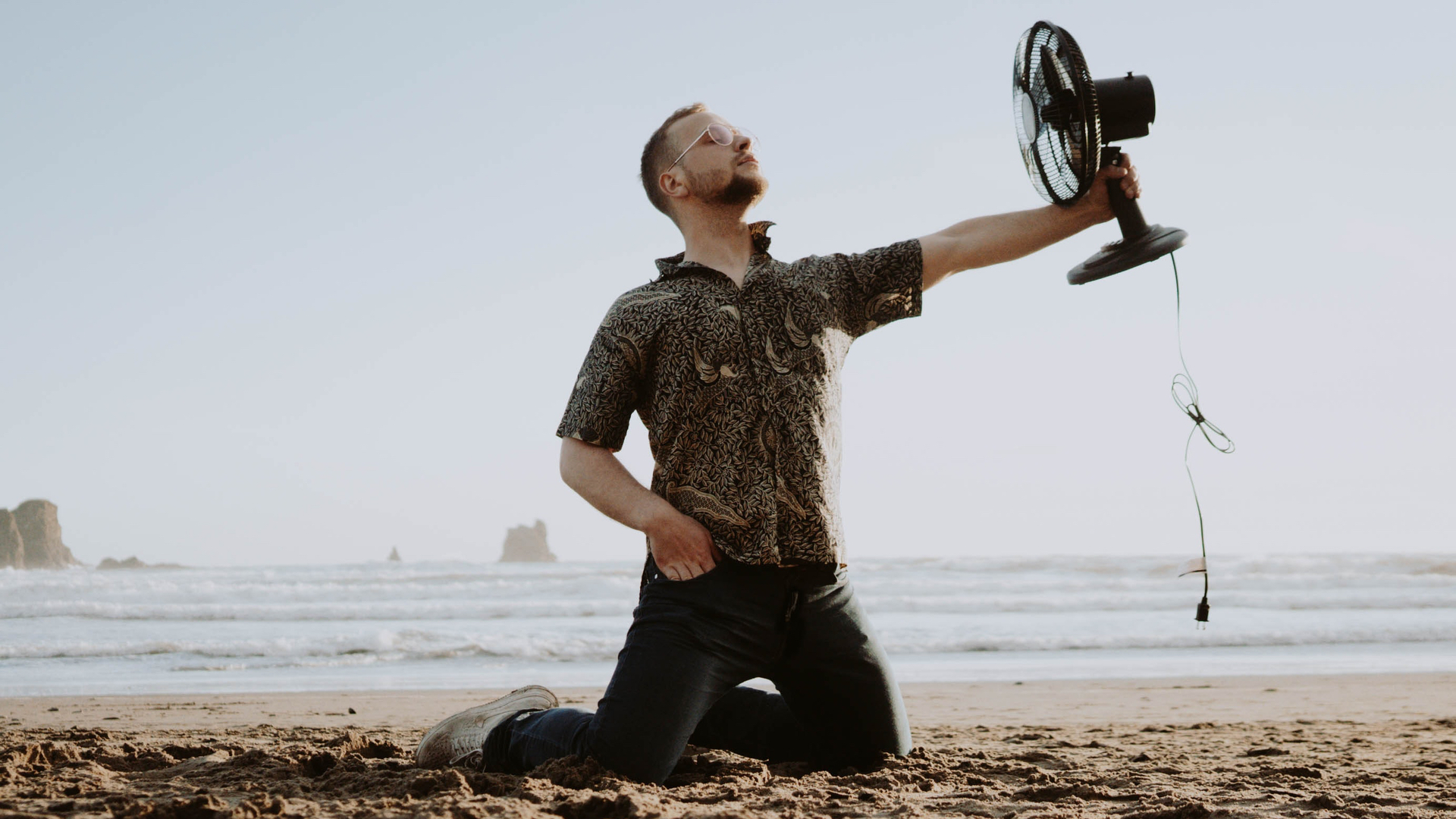 5 fans you can use outside: take the heat off with practical outdoor-friendly blowers
5 fans you can use outside: take the heat off with practical outdoor-friendly blowersFeature The best fans for outdoor use at home and away to tackle the summer heat
By Derek Adams
-
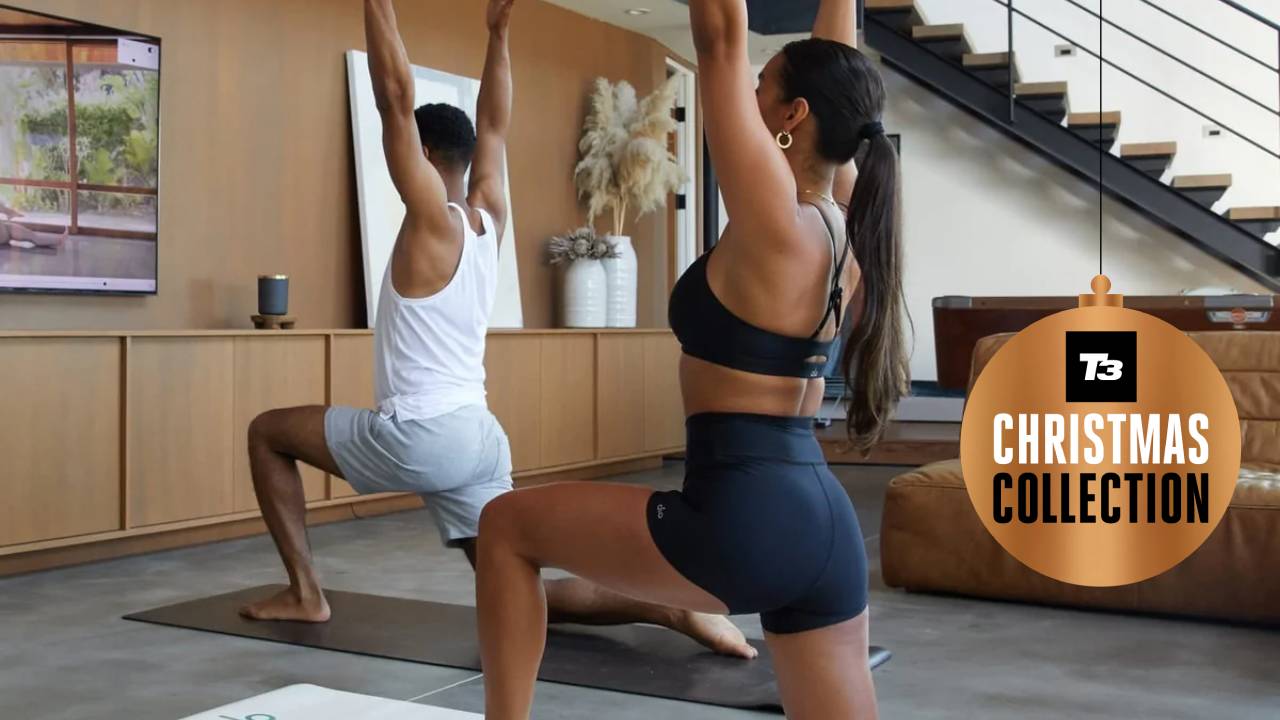 Best Christmas gifts for yoga fans: ideas for beginners to experts
Best Christmas gifts for yoga fans: ideas for beginners to expertsFeature Know someone who loves yoga? Here are the best Christmas gift ideas for yogis
By Bethan Girdler-Maslen
-
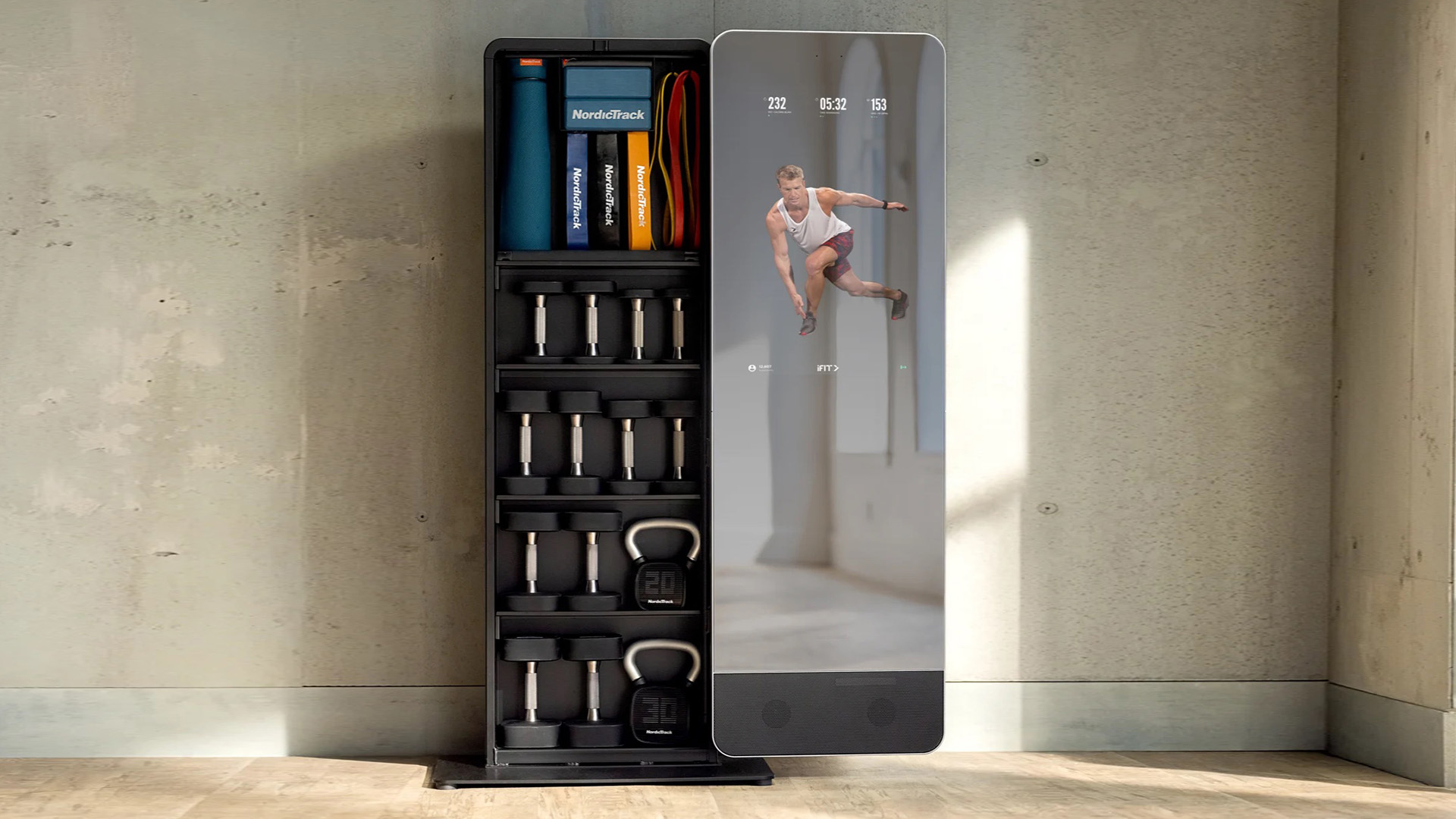 Best fitness mirrors 2025 to take your workouts to the next level
Best fitness mirrors 2025 to take your workouts to the next levelThe best fitness mirrors are here to slim you down and pump you up – without invading your space.
By TJ Fink
-
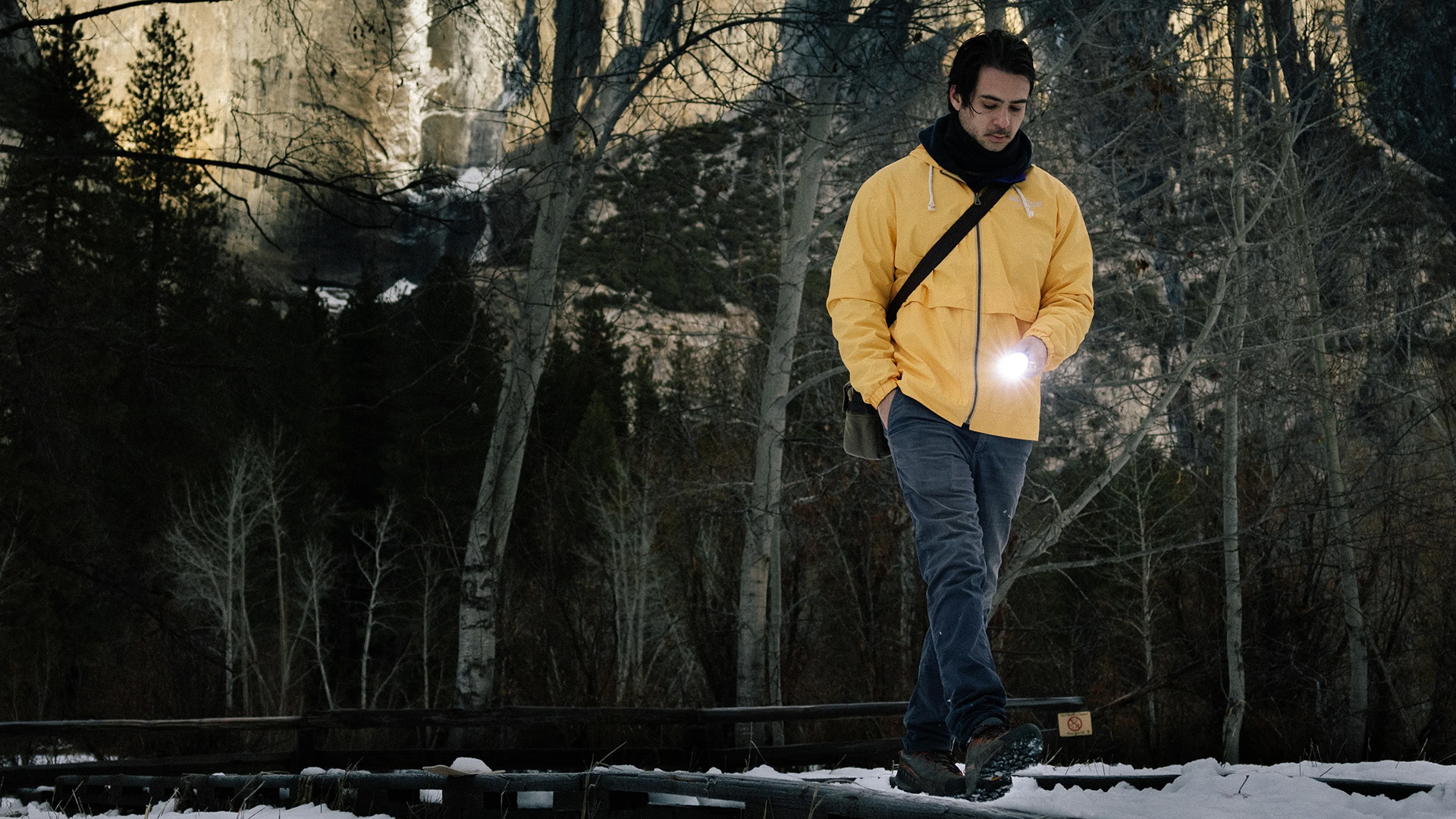 Best torch 2025: illuminate your way through the dark
Best torch 2025: illuminate your way through the darkGet the best torch for camping, night hiking, walking the dog or finding your way in a power cut
By Matt Kollat
-
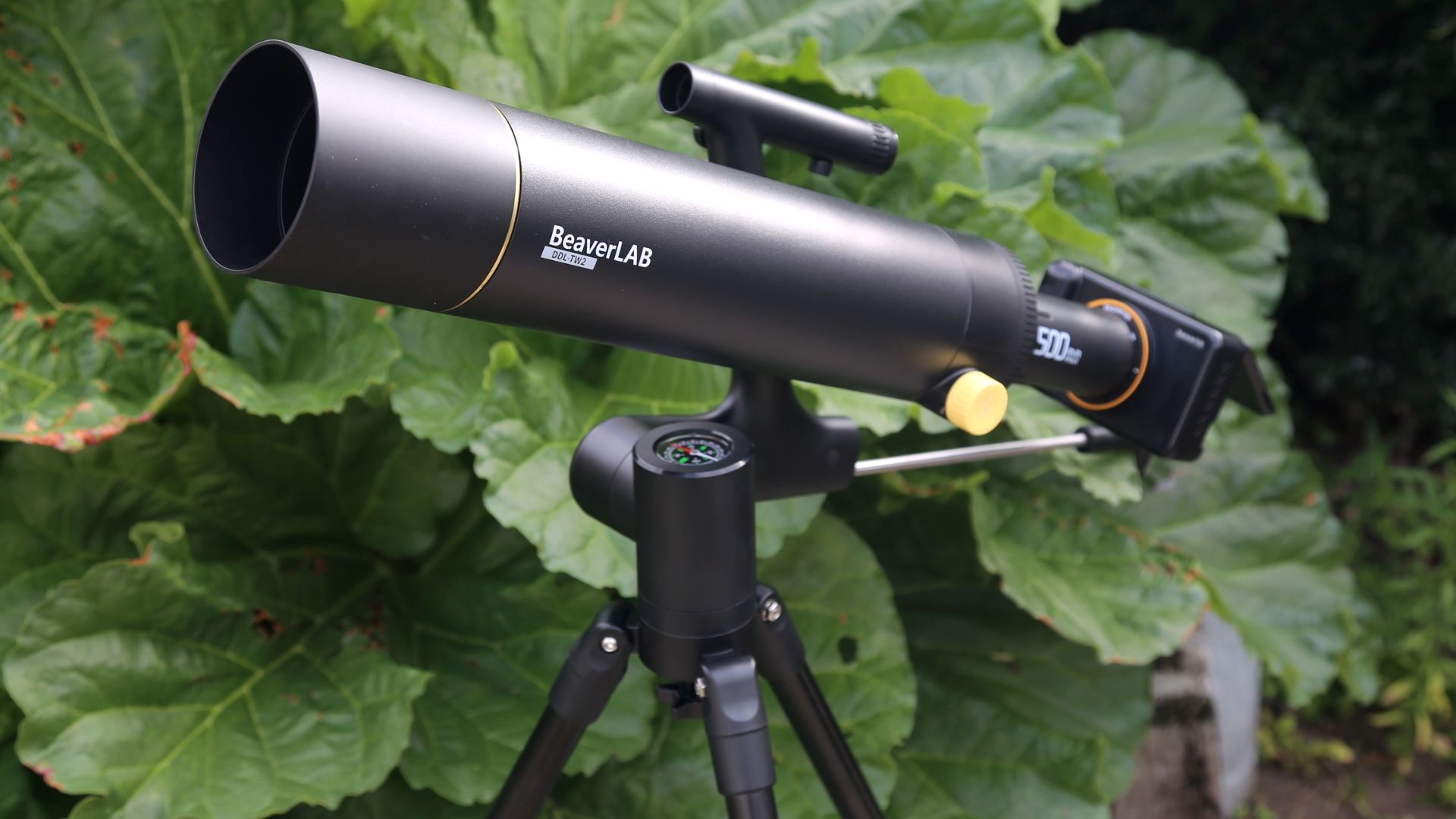 Best telescope for stargazing 2025: Bring the stars closer to home
Best telescope for stargazing 2025: Bring the stars closer to homeExplore the wonders of the universe with the best telescopes, perfect for stargazers of all levels
By Matt Kollat